|
|
|
On more than one occasion, I have made the mistake of accepting jobs with clients who have been referred to me by family members. In one case, a woman hired me to work with her adult daughter, a single mother of four. On another occasion, a son and daughter-in-law (who lived out of state) asked me to work with his parents who were in their nineties. In both situations, there was a clear need for the assistance of a professional organizer, and I completed several sessions with good result, but the results were short-lived. I would return each week to find that little effort had been made in my absence to maintain what had been accomplished on my previous visit. Both cases ended with me contacting the referring family member to tell them I no longer felt comfortable taking their money. Why? Because both the adult daughter and the aging parents lacked the most essential requirement for successful, long-term decluttering: desire. While it was clear to me, and to their loved ones, that they could assuredly benefit from a decrease in clutter combined with an increase in organization, neither felt particularly compelled to embrace the process. In all honesty, I suspect that both felt a tad resentful at having their space invaded by a stranger in order to quell the unwelcome judgments of well-meaning (but meddlesmone) family members. I could have helped the elderly couple and the single mom. I could have made their lives easier and their spaces more comfortable. I could have saved them time, and money, and frustration. None of that mattered, though, because they didn't really want my help. They liked their spaces the way they were. They liked their stuff and didn't feel a need to part with anything. Because they had no desire to declutter, any efforts by outsiders to help them do so were destined for eventual, if not immediate, failure.
One person's clutter is another person's comfort. This being the case, it is impossible, not to mention inconsiderate, to inflict decluttering on another adult person. It won't work. The minute they are left to manage their space as they like, the clutter will return. They will, in all likelihood, seek it out in order to restore a sense of normalcy and ownership to their space. This reluctance (or downright refusal) on the part of family members to clear away the clutter can be frustrating to say the least, but think of it from their perspective. Would you want someone telling you what you should do with your things? Do you not consider yourself the authority on your stuff? What appears to be clutter to some seems entirely appropriate, and even desireable, to others. This point is reinforced to me a couple of times a year when we visit my father-in-law whose relationship with stuff is completely foreign to me.
My father-in-law loves stuff. Personally, I take Marie Kondo at her word. If an item - in and of itself - does not bring me joy, I find it a new home. For my father-in-law, simply obtaining things brings him joy, and having them fills him with comfort. The nature or quality of a particular thing has no real bearing on its ability to bring him satisfaction. It isn't the thing itself but the possesion of it that seems to bring him pleasure. He just loves aquiring and having things. Let me share an example (or two) to illustrate my point. On our most recent visit he couldn't wait to show me his latest acqisition. "Check out this desk I found on the side of the road. It was free." (It looked free.) It was obvious from the enthusiastic anticipation on his face that he was waiting for me to congratulate him on the procurement of this amazing find, but I couldn't. I just couldn't. Instead I said, "Do you need another desk?" knowing full well that he does not. He has seven desks. I counted them. "No," he smiled, unperturbed by the failed attempt at affirmation. "But it was free." This exchange is only too common between us. Ask me about the second sewing machine. - he does not know how to sew - or the bicycle he paid to have resurrected after stumbling across it at the dump (yes, the dump). He is 77 years old, and one has to traverse no less than a minimum of four miles of gravel roads in any given direction in order to get to his house. Members of our family (my husband and I included) have had flat tires on three occasions driving on those gravel roads. What on earth does he want with a junkyard bicycle? Dad likes to think that he will ride the bicycle or learn to use the sewing machine (both of which he has had without using for over a year now), but in all honesty, he isn't the least bit concerned about whether or not they actually earn their keep. He just likes having them.
As a person who loves order, I used to cringe a little encountering all the loose screws and empty plastic containers and other odds and ends my husband's father insists on keeping. I used to grumble to myself every time I opened the ridiculously heavy drawer in his kitchen where he keeps his 17 frying pans (two or three of which he actually uses). It used to bother me terribly thinking about the fact that some day my husband and his brother are going to have to deal with all that stuff.
How am I able to make those statements in the past tense? Because I've come to a realization. His stuff is his stuff. It's his life, and his house. He isn't a hoarder. His place, while not as orderly and neat as my own, is perfectly presentable. Most importantly, though, it brings him joy. It makes him happy to have his things about him, no matter how unnecessary and lacking in value some of those things may seem to others. While the professional in me wishes that all the world would embrace the wisdom of living a clutter-free life, the daughter in me has come to realize that it's just stuff, and for now it has a happy home with someone who values it. Possessions are highly personal in nature. There is no sense in trying to define the worth of someone else's belongings for them. For this reason, those of us who are inclined toward order must sometimes learn to be patient and accepting of those who happily inhabit the other end of the clutter spectrum.
22 Comments
We've all heard the axiom "A place for everything, and everything in its place." I have often seen this statement attributed to Benjamin Franklin, but in researching the phrase, it seems that there is some question as to its actual origins which might date back as far as 1640. Whoever said it first, one thing is clear: this is a truth that has been understood for centuries, and with good reason. The proverb actually emphasizes two principles of organization. The first is that everything should have a designated place where it is stored. The second is that things should be returned to their rightful place when not in use. These truths seem obvious enough, but the fact is that both aspects of this maxim can, and do, present challenges for some (if not most) people. Does Everything Really Need a Place?Yes. The answer to this question is yes. Which probably leads you to ask another, more direct question: why? The simple answer to the second query is clutter. Anything that doesn't have a home is clutter, and clutter is the enemy of us all. Clutter causes confusion, frustration, anxiety, stress, and irritability. It zaps our time, energy, creativity, productivity, and even our money (ever had to buy something you knew you owned but couldn't find?). In contrast, a home where everything has its place, and everything resides in its proper place is peaceful, relaxing, inviting, and inspiring. When you walk into such a space, you want to sit down and stay awhile - after admiring all the lovely order. When things have a designated space, they aren't just easier to find, they're easier to appreciate. Cluttered shelves, countertops, and surfaces swallow up everything that resides on them. It's as if they fall into a visual hole. Their identity is lost in the jumble. AFFILIATE DISCLOSURE: This post contains affiliate links. This just means that there are product suggestions included within the text. Should you click on one of the links and decide to make a purchase, I will receive a small commission. I only suggest products I love and have experience with that are directly related to the content in this post. You can view my Disclosure Statement for more information. Thank you for your support! Finding Everything a PlaceThe first step to finding a place for everything in your home begins with determining which things deserve a place in your home. That means decluttering, or purging your belongings. Once you've paired down your belongings to those things that serve a purpose and/or speak to your heart, it's time to determine where they should reside. Try implementing these suggestions for finding a home for all the things within your home. Consider Logical Locations I'm a big fan of creating a whole house storage plan. This involves thinking through the storage spaces in your home and determining what should go where. During our recent move (and numerous previous moves), I applied this concept to every space in our home, not just the storage spaces. For instance, I mapped out my kitchen and decided (before unpacking) what items should go where based on ease of use. To determine the best location for things, there are some basic guidelines you can apply.
Consider Space Limitations Almost everyone wishes they had more storage space. In many cases, you can increase your space's storage capacity by adding a shelf here or a storage solution there. For example:
The laundry room in our new home was spacious but it bothered me that there was a large swath of wall above the sink and washing machine that was completely unused. I asked our contractor (who was completing other work in the house) if he could build me some shelves to match the existing wall cabinet, and I'm so glad that I did! The addition of the shelves significantly increased the room's storage capacity, and I think it looks much more attractive as well.
Consider Storage Options When finding a place for things, the method of storage can be as important as the location. Different types of items require different types of containers. What's suitable for certain things, won't work well for others. Consider the following as you plan out where to place things:
Of course not all things are intended to be tucked away in a storage bin out of sight. Some things are meant to be viewed and enjoyed. Too much can be said about how to store and display specific types of items to go into the topic in depth here. Suffice it to say that those things you love to look at should inhabit a place of honor in your home. Display them where you can see them and in a way that does them justice. What to Do When You Don't Know
|
Everything In Its Place | |
The second part of our famous adage is "everything in its place". In other words, it is only helpful to have a place for everything if things are placed where they belong when not in use. This is a different skill set and involves forming certain habits such as:
To some these behaviors may seem tedious and time-consuming. In reality, each of these tasks take mere moments to perform when done as they arise, and the result is well worth the effort. Think how wonderful it feels to walk into a tidy, organized space at the end of a long day versus walking into an unkempt, disorderly space. The former is relaxing, while the latter increases stress and tension.
- hanging up coats and placing shoes and bags where they belong when entering the home
- putting dirty clothes in the hamper upon removing them and putting clean clothes in the closet or dresser once washed
- putting dirty dishes in the dishwasher (or washing them as soon as they are used)
- making the bed
- putting toys, games, books, movies, projects, supplies, and tools away after each use
- resetting a room upon leaving the space - i.e. putting everything back where it belongs
To some these behaviors may seem tedious and time-consuming. In reality, each of these tasks take mere moments to perform when done as they arise, and the result is well worth the effort. Think how wonderful it feels to walk into a tidy, organized space at the end of a long day versus walking into an unkempt, disorderly space. The former is relaxing, while the latter increases stress and tension.
Apply the Ancient Wisdom | |
When a concept continues to be emphasized centuries after it was introduced, it's a safe bet that concept is worth considering. The notion that everything should have a place and reside in its place when not in use is an old one but a profound one. Applying this ancient wisdom will not only bring order to your space but also peace to your mind and heart.
My husband writes books, and I edit them. Editing can be a tedious task. It takes time and concentration to make a careful, deliberate review of the material. When I edit my husband's writing, I am looking for typos and grammatical errors (copy editing), but I am also evaluating the effectiveness of his argument and the fluidity of the text (content editing). I'm not just interested in whether his work is written properly; I'm interested in whether it is written well. I want it to be a true and compelling representation of his thoughts and ideas.
It occurred to me recently that decluttering and downsizing are kind of like editing. In fact, the word edit can mean to expunge or eliminate [the unnecessary]. While this definition is highly appropriate to a discussion about removing clutter, I also like applying the more common (grammatical) definition of edit, which is to revise or correct. When we downsize and declutter, our goal shouldn't be limited to removing the excess, but also to setting things right in our environment (i.e. revising and correcting).
To me, the ideal space is one that is a true reflection of its owner. Clutter has a way of crowding in and making itself at home, obsuring the purpose and personality of a space in the process. Editing a space allows us to revise its form and function so that it becomes a proper depiction of who we are, what we value, the road we've traveled, and how we like to live.
When editing your own or someone else's writing, there are certain things you look for and eliminate in order to make the work the best it can be. The same is true for editing your space.
It occurred to me recently that decluttering and downsizing are kind of like editing. In fact, the word edit can mean to expunge or eliminate [the unnecessary]. While this definition is highly appropriate to a discussion about removing clutter, I also like applying the more common (grammatical) definition of edit, which is to revise or correct. When we downsize and declutter, our goal shouldn't be limited to removing the excess, but also to setting things right in our environment (i.e. revising and correcting).
To me, the ideal space is one that is a true reflection of its owner. Clutter has a way of crowding in and making itself at home, obsuring the purpose and personality of a space in the process. Editing a space allows us to revise its form and function so that it becomes a proper depiction of who we are, what we value, the road we've traveled, and how we like to live.
When editing your own or someone else's writing, there are certain things you look for and eliminate in order to make the work the best it can be. The same is true for editing your space.
Identify Mistakes | |
Mistakes in spelling, sentence structure, subject-verb agreement, and other common grammatical errors are the most obvious to search for and often the easiest to spot when editing a piece of writing.
The same is true for mistakes in stuff. In this category I would include anything you purchased, or received as a gift or hand-me-down, which you do not like, need, or use. They are the things people hang onto out of a sense of guilt or obligation, and they could be almost anything. Examples include:
We all make mistakes in stuff on a regular basis. These mistakes help us to refine our tastes. In this way, they are not a waste, and we can feel good about letting them go and moving on with our lives.
The same is true for mistakes in stuff. In this category I would include anything you purchased, or received as a gift or hand-me-down, which you do not like, need, or use. They are the things people hang onto out of a sense of guilt or obligation, and they could be almost anything. Examples include:
- personal hygeine or cleaning products you tried but did not like
- food you bought in the hopes of eating healthier that no one in your household will touch
- clothing that looked good in the store but doesn't quite fit in the way you hoped it would
- appliances, tools, and gadgets that don't meet a need or work as expected
- books or movies you bought but didn't enjoy
- gifts you received that don't appeal to your tastes or interests
We all make mistakes in stuff on a regular basis. These mistakes help us to refine our tastes. In this way, they are not a waste, and we can feel good about letting them go and moving on with our lives.
Identify Inconsistencies | |
To be inconsistent is to lack harmony or agreement, to be at variance. In wiriting, inconsistencies are those sentences or ideas that don't seem to have a place in the overall work. They may be related, but not closely enough to blend well with the rest of the text. They leave the reader wondering, "What's that got to do with anything?"
Inconsistencies in our personal possessions are similar in that they do not seem to belong. They seem incongruent. They may be items we have purchased ourselves, or they may be things that we were gifted in one form or another. If you've ever looked at a thing and thought, "This really isn't me," you've encountered an inconsistency in your possessions.
Chances are, if you don't like a thing it's because it doesn't speak to you; it's not in harmony with your interests or tastes or conceptions. If that is the case, you can feel comfortable parting with whatever it may be, even if it was given to you by someone else. You need feel no obligation to keep things other people think you might (or even should) like or use. Only keep those things that represent a true reflection of you.
Inconsistencies in our personal possessions are similar in that they do not seem to belong. They seem incongruent. They may be items we have purchased ourselves, or they may be things that we were gifted in one form or another. If you've ever looked at a thing and thought, "This really isn't me," you've encountered an inconsistency in your possessions.
Chances are, if you don't like a thing it's because it doesn't speak to you; it's not in harmony with your interests or tastes or conceptions. If that is the case, you can feel comfortable parting with whatever it may be, even if it was given to you by someone else. You need feel no obligation to keep things other people think you might (or even should) like or use. Only keep those things that represent a true reflection of you.
Identify Redundancies | |
It can be tempting as a writer to restate a concept in a slightly different way for added emphasis, but this practice can grate on readers if it seems as though the author is just repeating himself. While we may not enjoy redundancy as readers, many of us practice it openly with regard to our possessions.
Redundancy occurs anytime we have multiples of an item when one or two would do nicely. It is good to have multiples of some things. Obvious examples are bath towels, underwear, dinner plates, and cutlery, to name just a few. In many cases, though, redundancy (or multiples) only increase the clutter in a home without being truly useful.
A good way to determine whether or not a particular item is a good candidate for maintaining multiples is to ask yourself:
If your answer is no, you don't use them all because, yes, you do have a favorite, you can feel comfortable getting rid of the extras. They are not serving a purpose; they are just taking up space.
Redundancy occurs anytime we have multiples of an item when one or two would do nicely. It is good to have multiples of some things. Obvious examples are bath towels, underwear, dinner plates, and cutlery, to name just a few. In many cases, though, redundancy (or multiples) only increase the clutter in a home without being truly useful.
A good way to determine whether or not a particular item is a good candidate for maintaining multiples is to ask yourself:
- Do I use all of these? Or do I have a go to favorite that I use repeatedly?
If your answer is no, you don't use them all because, yes, you do have a favorite, you can feel comfortable getting rid of the extras. They are not serving a purpose; they are just taking up space.
Identify Ramblings | |
In addition to writing books, my husband teaches history. While grading papers recently, he came across a student whose work was rife with unreasonably lengthy sentences - 100 words or more. For a reader, such lengthy statements are difficult to digest. One gets lost in the middle and forgets what the point of the sentence was or how it ties to other ideas being expressed.
The same can be true of possessions, particularly collections. Too much of a good thing is not a good thing. It's tempting when you begin collecting to snatch up any item you encounter that fits your collection. In addition, friends and family often add to collections at gift-giving occasions because it's easy to buy for someone if you know they love ceramic chickens or sports memorabilia or all things Star Wars.
As with multiples in other forms (as mentioned in the previous section), some specimens are better than others, and the collector will undoubtedly have favorites. Editing a collection can actually add to its charm and visual impact. A few good pieces will stand out and draw people's attention like a true focal point. On the other hand, a dizzying array of related pieces often reads as clutter to the mind. Nothing stands out and demands to be noticed because everything gets lost in the jumble.
The same can be true of possessions, particularly collections. Too much of a good thing is not a good thing. It's tempting when you begin collecting to snatch up any item you encounter that fits your collection. In addition, friends and family often add to collections at gift-giving occasions because it's easy to buy for someone if you know they love ceramic chickens or sports memorabilia or all things Star Wars.
As with multiples in other forms (as mentioned in the previous section), some specimens are better than others, and the collector will undoubtedly have favorites. Editing a collection can actually add to its charm and visual impact. A few good pieces will stand out and draw people's attention like a true focal point. On the other hand, a dizzying array of related pieces often reads as clutter to the mind. Nothing stands out and demands to be noticed because everything gets lost in the jumble.
Identify the Outdated or Incomplete |
As a military historian, my husband has written on a number of topics (such as the Iraq War, the rise of ISIS, and the War in Afghanistan) which are ongoing in nature. Because these topics are continually evolving, part of the editing process involves making sure that the information included in the book is the most up-t0-date information available at the time of publication.
When it comes to our homes, we often don't have to look far to find items which are either outdated or incomplete. Outdated items could include electronics, clothing, media, books, reference materials, software, or calendars and planners, to name a few. They may have gone out of style, been surpassed by newer technology, or contain information that is no longer accurate.
As for incomplete items, this would include anything that is missing parts or pieces. For some inexplicable reason, we (including me!) have a tendency to hold onto such things, even though they no longer work properly. Be they puzzles or appliances, they do not deserve a place in your space if they do not work as intended.
Both of these types of items are simple to edit as they often have no sentimental or inherent value. Chances are you know exactly where they are located, so finding them and getting rid of them should be easy work.
When it comes to our homes, we often don't have to look far to find items which are either outdated or incomplete. Outdated items could include electronics, clothing, media, books, reference materials, software, or calendars and planners, to name a few. They may have gone out of style, been surpassed by newer technology, or contain information that is no longer accurate.
As for incomplete items, this would include anything that is missing parts or pieces. For some inexplicable reason, we (including me!) have a tendency to hold onto such things, even though they no longer work properly. Be they puzzles or appliances, they do not deserve a place in your space if they do not work as intended.
Both of these types of items are simple to edit as they often have no sentimental or inherent value. Chances are you know exactly where they are located, so finding them and getting rid of them should be easy work.
As an editor and an organizer, I hope you will apply these suggestions for editing your space. Doing so serves much the same purpose as editing a written product; it makes the space better, more enjoyable to experience, easier to work with (or within), and nicer to share with others.
AFFILIATE DISCLOSURE: This post contains affiliate links. This just means that there are product suggestions included within the text. Should you click on one of the links and decide to make a purchase, I will receive a small commission. I only suggest products I love and have experience with that are directly related to the content in this post. You can view my Disclosure Statement for more information. Thank you for your support!
When you hear the word clutter, what comes to mind? If you're like most people, physical clutter is the thing you think of first. It may even be the only thing. In truth, though, clutter can take many forms. Kerri L. Richardson, professional organizer and author of the book What Your Clutter Is Trying To Tell You, defines clutter as follows:
When thought of in this way, many other types of clutter become evident. The first step to decluttering is to uncover your clutter. In other words, to truly conquer your clutter, you have to identify it in all its forms in order to root it out and remove it from your life.
Seen and Unseen |
Not all clutter is visible. While visible clutter (which I will refer to as physical clutter) is the most obvious, it may not be the most limiting or the most impactful form of clutter in a person's life. Clutter can be mental, emotional, or spiritual as well. While generally unseen, these types of clutter (sometimes referred to as "baggage") can have a radical impact on quality of life and overall well-being.
Conscious and Unconscious |
The clutter that is conscious is the clutter that you recognize and acknowledge. When you encounter conscious clutter, it elicits a reaction. The reaction can be both intellectual and physical in nature. For example, seeing a cluttered countertop might cause your muscles to tense or your heartrate to increase. It might also conjur negative thoughts and emotions.
While most conscious clutter is physical, not all physical clutter is conscious. It's possible for a person to become so used to physical clutter that he or she develops a sort of clutter blindness.
Unconcious clutter can also evoke physical and emotional signs of stress. The difference lies in the fact that unconcious clutter is not recognized as clutter. It can be anything in your life that is getting in your way, preventing your progress, or impacting your peace and happiness. This description of clutter by inspirational writer Eleanor Brownn perfectly describes what I am referring to as unconscious clutter.
While most conscious clutter is physical, not all physical clutter is conscious. It's possible for a person to become so used to physical clutter that he or she develops a sort of clutter blindness.
Unconcious clutter can also evoke physical and emotional signs of stress. The difference lies in the fact that unconcious clutter is not recognized as clutter. It can be anything in your life that is getting in your way, preventing your progress, or impacting your peace and happiness. This description of clutter by inspirational writer Eleanor Brownn perfectly describes what I am referring to as unconscious clutter.
Uncovering Your Clutter |
Now that we have expanded our understanding of clutter, let's take a closer look at the different kinds of clutter.
Physical Clutter |
Physical clutter is stuff. It takes up space in the physical world. When searching for a definition of clutter, you will find that it is often associated with disorder, confusion, and excess. Physical clutter refers to those items that are unused, unneeded, and/or unwanted but held onto for one reason or another. It can also refer to items that are out of place or have no permanent home.
It's interesting to note that the reasons behind the accumulation and retention of physical clutter could be considered a form of clutter in and of themselves. I'm thinking here of the guilt or fear that often cause us to hold onto things that really don't have a place in our lives.
Clearing Away Physical Clutter:
This website is dedicated largely to the concept of dealing with physical clutter, so I won't go into tremendous depth here. Instead, I will just offer a few simple suggestions for getting started.
It's interesting to note that the reasons behind the accumulation and retention of physical clutter could be considered a form of clutter in and of themselves. I'm thinking here of the guilt or fear that often cause us to hold onto things that really don't have a place in our lives.
Clearing Away Physical Clutter:
This website is dedicated largely to the concept of dealing with physical clutter, so I won't go into tremendous depth here. Instead, I will just offer a few simple suggestions for getting started.
- Identify out of place items. Then find them a home or get rid of them.
- Establish a specific place for all of your belongings and practice putting things in their place when not in use.
- Develop a declutter mindset. Make a habit of getting rid of anything you encounter that does not serve a useful purpose in your life or speak to your heart.
- Create and utilize systems for dealing with incoming and outgoing gear and other frequently accessed items such as mail.
- Devote 15 minutes a day to decluttering by tackling small projects such as a drawer, a cupboard, or a countertop or other surface.
Mental Clutter |
Mental clutter accumulates when we have too much to do or to think about. As a result, our brains become overloaded making it difficult to focus, problem solve, and be productive. This leads to stress, anxiety, and frustration.
If you are like me, you probably find yourself thinking most clearly during down times such as while driving, taking a shower, exercising, or laying in bed first thing in the morning. This is because these simple, semi-automatic activities require very little 'brain power', thus allowing our minds to focus in on a particular problem that's been troubling us or to suddenly wow us with a flash of brilliance or creative genius. The problem is, capturing these light bulb moments can be tricky when one is in the middle of traffic or dripping wet. The good news is, there are things we can do to recreate the circumstances that foster mental clarity.
Clearing Away Mental Clutter:
If you are like me, you probably find yourself thinking most clearly during down times such as while driving, taking a shower, exercising, or laying in bed first thing in the morning. This is because these simple, semi-automatic activities require very little 'brain power', thus allowing our minds to focus in on a particular problem that's been troubling us or to suddenly wow us with a flash of brilliance or creative genius. The problem is, capturing these light bulb moments can be tricky when one is in the middle of traffic or dripping wet. The good news is, there are things we can do to recreate the circumstances that foster mental clarity.
Clearing Away Mental Clutter:
- Practice meditation. Quieting your mind is one of the best ways to invite clear thinking.
- Avoid multitasking. It does not work. Countless studies have concluded that multitasking is totally ineffective.
- Practice single-tasking. By concentrating on one task through completion, you will actually get more done and feel less stressed.
- Download information from your brain to a safe location such as a digital or paper notebook. Make a habit of recording insights, ideas, or things you need to do as you think of them. If you know the information is in a safe place where you can access it as needed, your brain will be able to relax and focus on the things of greatest current relevance. Try to utilze one specific system for recording things you want to remember. Random bits of paper are not a safe way to retain information.
- Reduce distractions. Distractions only add to mental clutter. Limiting them increases the ability to focus.
- Declutter your physical environment. Studies show that physical clutter engenders feelings of stress and reduces our ability to focus because our brains register clutter as something that needs to be dealt with.
Emotional Clutter |
Emotional clutter comes as a result of negative thoughts and feelings that weigh us down and limit our progress. Guilt, fear, anger, resentment, self-doubt, jealousy, anxiety, and grief are some of the biggest culprits. Despite their damning effect on us (or perhaps because of it), we often cling to these emotions, and the sources from which they spring, with self-destructive determination.
What are the sources of emotional clutter? Some examples include:
The key to overcoming emotional clutter is to develop emotional resilience, or the ability to adjust or recover when faced with change, setbacks, disappointments, and other challenges that life presents.
Clearing Away Emotional Clutter:
What are the sources of emotional clutter? Some examples include:
- unhealthy, one-sided, or toxic relationships
- comparisons to others
- perfectionism
- inaction
- unrealistic expectations
- clinging to the past
- holding onto hurt or injustice
- harboring negative thoughts
The key to overcoming emotional clutter is to develop emotional resilience, or the ability to adjust or recover when faced with change, setbacks, disappointments, and other challenges that life presents.
Clearing Away Emotional Clutter:
- Think positive. Each thought creates a pathway of sorts in our brains. The more we focus on a particular thought, the smoother and clearer that pathway becomes. One way to train your mind to take the positive path is through affirmations.
- Take care of yourself. Negative thoughts often lead to negative behaviors (and vice versa). Things that are good for you physically such as a healthy diet, regular exercise, sufficient sleep, and plenty of fresh air and sunshine, produce dopamine in our brains. One of the effects of increased dopamine is mood enhancement. Thus, taking care of our bodies is also a good way to increase emotional health.
- Seek positive methods of stress relief. Develop constructive ways of reducing stress that build you up and strengthen your resiliency. Examples include meditation, yoga, exercise, or any activity that relaxes you and brings you joy.
- Look outward. One of the best ways to improve your outlook is to help others who are in need. Service makes you feel good - about yourself and your situation. By serving others, especially those whose circumstances are less fortunate than our own, we are able to put our problems in perspective and better appreciate the good in our lives.
- Practice gratitude. Keep a gratitude journal or just make a goal to thank someone every day for something they have done for you. Before you know it, you will be looking at things in a much more positive light.
- Build strong relationships. Positive connections to other strengthen and energize us as humans. By fostering healthy bonds with others, you create a source of both joy and support in your life.
- Focus on the future. No one can change the past, but we can impact our future through the choices we make and the things we emphasize.
- Learn and grow. Focus on something you want to do or to learn and begin working toward that goal. This will help to develop a sense of purpose and foster feelings of self-worth. It will also keep your focus on the future.
Spiritual Clutter |
Integrity is often associated with honesty. That is certainly an important aspect of integrity, but there is more to this concept than mere veracity. Integrity also means whole, sound, undiminished, unimpaired. When applied to one's character, I think a good way to define integrity is living in such a way that your actions are consistent with your beliefs. In other words, integrity is being true to yourself.
When we make choices that we know are not an accurate reflection of how we believe we should live our lives, our integrity is weakened. Much like a building that is structurally unsound, poor choices can leave us feeling unbalanced, out of alignment, and just off. It could be as serious as committing a crime or breaking a vow or as simple as being unkind or eating something that's bad for you. It all depends on what matters to you and the person you want to be. Whatever the case, the more we live out of sync with the things we believe to be right, the more spiritual clutter amasses in our lives.
Clearing Away Spiritual Clutter:
When we make choices that we know are not an accurate reflection of how we believe we should live our lives, our integrity is weakened. Much like a building that is structurally unsound, poor choices can leave us feeling unbalanced, out of alignment, and just off. It could be as serious as committing a crime or breaking a vow or as simple as being unkind or eating something that's bad for you. It all depends on what matters to you and the person you want to be. Whatever the case, the more we live out of sync with the things we believe to be right, the more spiritual clutter amasses in our lives.
Clearing Away Spiritual Clutter:
- Forgive yourself. None of us are perfect, and dwelling on our failings only drags us down. Instead, practice giving yourself grace. When you fall short of your own expectations, rise up and try again. Remember that forward progress is progress, no matter how small.
- Forgive others. Few things can weigh a person down more than holding a grudge. If you are harboring hard feelings toward someone who has wronged you, recognize that you are only harming yourself. Letting go of hurt is the only way to truly heal.
- Seek forgiveness. If you have wronged another, apologize. As hard as it may be to face someone you have hurt, it's nothing compared to the spiritual burden resulting from feelings of guilt and remorse. Admitting mistakes isn't always easy, but it is invariably liberating.
- Define what right looks like. Take time to reflect on the person you want to become and outline for yourself what it means to be that person. How does such a person behave? What does he or she value?
- Embrace defining affirmations. Create simple, positive statements that emphasize who you are striving to become such as I am a person who treats others with respect and kindness, or I am a person who values health and well-being. As such, I continually strive to care for my mind and body.
- Emphasize the positive. Instead of saying, I can't eat carbs or I can't drink alcohol, say I don't eat carbs or I don't drink alcohol. This simple variation in word choice makes a huge difference in behavior. The word can't implies that something is being forced upon you against your will. Whereas, the word don't indicates a choice. Studies show that people are far more likely to stick to a new habit if they emphasize don't over can't.
- Set attainable goals. Speaking of new habits, the best way to build them is through simple, managable steps. I highly recommend James Clear's book Atomic Habits for an interesting and insightful look at the science behind forming habits and an easy approach to applying that science successfully.
It Doesn't Matter Where You Start |
Clutter can be overwhelming. When it comes to physical clutter, clients often tell me, "I don't know where to start." The same can be true for all forms of clutter, be it mental, emotional, or spiritual.
My response to this statement is always the same, and it holds true no matter what type of clutter you are dealing with. It doesn't matter where you start. Just start, and in doing so, you will build confidence and momentum that will carry you through to the end.
I wish you every success in uncovering and conquering your clutter. It is worth the effort. You can do it. I believe in you.
My response to this statement is always the same, and it holds true no matter what type of clutter you are dealing with. It doesn't matter where you start. Just start, and in doing so, you will build confidence and momentum that will carry you through to the end.
I wish you every success in uncovering and conquering your clutter. It is worth the effort. You can do it. I believe in you.
If you're feeling nervous about uncovering your clutter, contact me. The process is always easier when you have support.
Do you have boxes of old memorabia, awards, kids' artwork, souvenirs, and other odds and ends that you haven't looked at in years? What causes you hold onto these things? One distinct possibility is a sense of obligation. You may be thinking something like:
Or some similar form of self-imposed censure or guilt...
The thing is, if the items were truly important to you, they wouldn't be boxed up in the attic or basement or closet. They would be on display or in use because that is what we do with the things that we love.
Chances are, you've forgotten about many of the things that lay buried in the bottoms of boxes and stashed in the darkest recesses of your home's storage spaces. While you may enjoy a brief moment of reminiscence upon being reunited with these items, you are not likely to miss them should they cease to inhabit a place in your plane of existence. Still, getting rid of the guilt that keeps you from getting rid of the things you feel duty bound to keep is often harder than getting rid of the items themselves.
- My child made that.
- That was a gift from my co-workers at my last job.
- I earned that award/trophy in college
- I got that on my trip to _________
- My Great Aunt Bertie left me that
Or some similar form of self-imposed censure or guilt...
The thing is, if the items were truly important to you, they wouldn't be boxed up in the attic or basement or closet. They would be on display or in use because that is what we do with the things that we love.
Chances are, you've forgotten about many of the things that lay buried in the bottoms of boxes and stashed in the darkest recesses of your home's storage spaces. While you may enjoy a brief moment of reminiscence upon being reunited with these items, you are not likely to miss them should they cease to inhabit a place in your plane of existence. Still, getting rid of the guilt that keeps you from getting rid of the things you feel duty bound to keep is often harder than getting rid of the items themselves.
The good news is there is a way to preserve the memories and relationships and history associated with things without keeping the actual objects. The solution is photographs combined with scrapbooking or journaling. They say a picture is worth a thousand words, but taking the time to add a little information to accompany your photos will only add to the value of the image.
Implementing the Photographic Method of Decluttering
Some things are better suited to the photographic method of decluttering than others. You aren't likely, for instance, to feel the need to photograph kitchen utensils or other tools that you no longer use in order to preserve a memory of them. Indeed, you are also not likely to feel duty bound to keep such items.
The kinds of things that can be well-preserved with a photograph are the kinds of things we hold onto for sentimental reasons - they remind us of someone or something that we value. Let's look at a few examples and how to use photographs and journaling to let things go.
The kinds of things that can be well-preserved with a photograph are the kinds of things we hold onto for sentimental reasons - they remind us of someone or something that we value. Let's look at a few examples and how to use photographs and journaling to let things go.
Kids' Artwork
Kids tend to be prolific artists. While some of their work is truly memorable and worthy of preservation in its original form, the sheer volume makes it difficult to justify keeping all your child's artwork. Instead of storing boxes of underappreciated art, photograph or scan your kid's creations. You can then use the photos to create other things like calendars, stationery, notecards, coffee mugs, coasters, and more.
Consider taking a photo of your child with his or her creation, or if they are making it at home, photograph them in the process of creating. You can also take a video of them working on their masterpiece and ask them to describe it to you.
Kids tend to be prolific artists. While some of their work is truly memorable and worthy of preservation in its original form, the sheer volume makes it difficult to justify keeping all your child's artwork. Instead of storing boxes of underappreciated art, photograph or scan your kid's creations. You can then use the photos to create other things like calendars, stationery, notecards, coffee mugs, coasters, and more.
Consider taking a photo of your child with his or her creation, or if they are making it at home, photograph them in the process of creating. You can also take a video of them working on their masterpiece and ask them to describe it to you.
Certificates
A cheap and simple way to recognize or thank someone within an organization is to give them a certificate. The important thing to keep in mind when sorting through piles of certificates is that the real value is in the gesture, not the piece of paper itself. Some certificates are worth keeping, others can be disposed of down the road. Only you can determine which is which as it is a personal decision.
One nice thing about certificates is that they fit nicely into page protectors which can then be inserted into scrapbooks. Whether you decide to photograph a certificate or keep the original, I recommend writing down the circumstances under which it was received. While the who, what, and when may be included on the certificate, a brief explanation of the larger context can add meaning, particularly for children and grandchildren when the time comes for them to sort through your things.
A cheap and simple way to recognize or thank someone within an organization is to give them a certificate. The important thing to keep in mind when sorting through piles of certificates is that the real value is in the gesture, not the piece of paper itself. Some certificates are worth keeping, others can be disposed of down the road. Only you can determine which is which as it is a personal decision.
One nice thing about certificates is that they fit nicely into page protectors which can then be inserted into scrapbooks. Whether you decide to photograph a certificate or keep the original, I recommend writing down the circumstances under which it was received. While the who, what, and when may be included on the certificate, a brief explanation of the larger context can add meaning, particularly for children and grandchildren when the time comes for them to sort through your things.
Trophies and Awards
My husband served for more than 28 years in the United States Army. In the military awards are often given at the end of each assignment and are often accompanied with a gift (usually a wall hanging of some sort). For part of my husband's military career, he worked extensively with foreign militaries who also felt the need to provide him with gifts, often just for visiting their unit or for some other brief interaction.
For many years, we kept the vast majority of these items in boxes. When we bought our first home near the end of his career, we decided to create what my husband calls an "I love me wall" to display all the things he had accumulated over the years. We chose a stairwell and used it to create a collage wall (walls, really). Then we moved, and there was no such space in our new home, so we decided it was time to be discerning about what we kept.
Certificates were removed from their frames and placed in page protectors as described in the previous section. Some items were tossed out. Others were photographed, and a select few made it onto a new display wall in the basement.
Of the items we opted to photograph, the following information was included:
Similar efforts could be made to preserve children's sports trophies and other common awards. Take a photo of the child with their trophy (preferably in their uniform, and ideally with their coach). Then write down the key information.: the name of the league they played in, the time frame, the coach's name, their win-loss record, what position the child played, his or her stats for the season, and any other relevant information that you or your child might like to recall at some later date.
My husband served for more than 28 years in the United States Army. In the military awards are often given at the end of each assignment and are often accompanied with a gift (usually a wall hanging of some sort). For part of my husband's military career, he worked extensively with foreign militaries who also felt the need to provide him with gifts, often just for visiting their unit or for some other brief interaction.
For many years, we kept the vast majority of these items in boxes. When we bought our first home near the end of his career, we decided to create what my husband calls an "I love me wall" to display all the things he had accumulated over the years. We chose a stairwell and used it to create a collage wall (walls, really). Then we moved, and there was no such space in our new home, so we decided it was time to be discerning about what we kept.
Certificates were removed from their frames and placed in page protectors as described in the previous section. Some items were tossed out. Others were photographed, and a select few made it onto a new display wall in the basement.
Of the items we opted to photograph, the following information was included:
- What unit he belonged to when he received the award.
- Relevant dates associated with his service in the unit.
- Where he was stationed when he received the award.
- What his role/job was in the unit.
- Who gave him the award? When?
- Any special memories he has of his time in the unit.
- A description of his time in the unit – any deployments, any special assignments he had or accomplishments he achieved, etc.
Similar efforts could be made to preserve children's sports trophies and other common awards. Take a photo of the child with their trophy (preferably in their uniform, and ideally with their coach). Then write down the key information.: the name of the league they played in, the time frame, the coach's name, their win-loss record, what position the child played, his or her stats for the season, and any other relevant information that you or your child might like to recall at some later date.
Souvenirs
Souvenirs can take many forms from a pamphlet or ticket stub to a cheap trinket to an expensive artifact. We often hang onto all of them, no matter their value. Paper souvenirs can easily be placed in a scrapbook along with photos of the event or vacation with which they are associated. Other bulkier items require some consideration. Often in the midst of a vacation, a cheap knick knack may catch our attention. Once home, these inexpensive remembrances frequently end up in a box of "keepsakes'. That's fine if you have endless space to store stuff you rarely (if ever) look at. If not, consider photographing the less-than-display-worthy items and then getting rid of the objects themselves.
Once again, it is recommended that you record any relevant information about the event or vacation to accompany the photograph. Where is it from? When were you there? What was it about the object that initially appealed to you?
Souvenirs can take many forms from a pamphlet or ticket stub to a cheap trinket to an expensive artifact. We often hang onto all of them, no matter their value. Paper souvenirs can easily be placed in a scrapbook along with photos of the event or vacation with which they are associated. Other bulkier items require some consideration. Often in the midst of a vacation, a cheap knick knack may catch our attention. Once home, these inexpensive remembrances frequently end up in a box of "keepsakes'. That's fine if you have endless space to store stuff you rarely (if ever) look at. If not, consider photographing the less-than-display-worthy items and then getting rid of the objects themselves.
Once again, it is recommended that you record any relevant information about the event or vacation to accompany the photograph. Where is it from? When were you there? What was it about the object that initially appealed to you?
I've just listed a few of the general kinds of items you might consider photographing as a means of decluttering. Now that you have a feel for this approach, consider applying the photographic method of decluttering as a means of downsizing any memorabilia or other knick knacks you may have stashed away in boxes somewhere. It's simple. Take a picture and toss the item. Be sure to document the item's significance in writing. Then reclaim the storage space those items have been hoarding. You may find that you actually get more enjoyment out of looking at the photos than you ever did having the items stashed away in boxes out of sight.
I love this quote. It reminds me that actions lead to habits, and that I can control what habits I develop by making mindful decisions about how to act and spend my time day in and day out.
In many ways, organization and clutter are habits. Dozens of small decisions throughout the day have a big cumulative impact on the amount of clutter that surrounds us.
In the Western world, everyone deals with clutter all the time. Even for the organized and tidy, the threat of impending clutter is ever present. It's a sort of by-product of our lifestyle and culture. The good news is, we can choose whether to fight off the threat or succumb to it. In other words, our actions can either add to or limit the amount of clutter in our lives.
So the question each of us must ask ourself is "Am I a clutter creator, or a clutter reducer?"
People who live relatively clutter-free lives are able to do so because they have developed habits that prevent things from piling up unnecessarily. Consequently, they practice reducing their clutter on a nearly continual basis.
Let's examine the differences in every day behaviors of clutter creators versus clutter reducers.
In many ways, organization and clutter are habits. Dozens of small decisions throughout the day have a big cumulative impact on the amount of clutter that surrounds us.
In the Western world, everyone deals with clutter all the time. Even for the organized and tidy, the threat of impending clutter is ever present. It's a sort of by-product of our lifestyle and culture. The good news is, we can choose whether to fight off the threat or succumb to it. In other words, our actions can either add to or limit the amount of clutter in our lives.
So the question each of us must ask ourself is "Am I a clutter creator, or a clutter reducer?"
People who live relatively clutter-free lives are able to do so because they have developed habits that prevent things from piling up unnecessarily. Consequently, they practice reducing their clutter on a nearly continual basis.
Let's examine the differences in every day behaviors of clutter creators versus clutter reducers.
Where Does It Go?
Clutter Reducers
It will come as no surprise that clutter reducers follow the famous advice of Benjamin Franklin, "A place for everything, and everything in its place."
Clutter Creators
A major contributor to the creation of clutter is the lack of an assigned space for things. When it is unclear where a thing belongs, that thing typically gets left lying around. Therefore, if you're serious about reducing clutter, you must determine a location for everything in your home. This may require some serious consideration up front, but it pays long term dividends towards living a clutter-reduced lifestyle.
If you don't know where a thing belongs, ask yourself why. Is it because there isn't room for the item in the place where you think it should belong? Or is it because the thing has no real meaning or value to you? Or is it something else? The answer to this question is the first step in resolving the overall issue.
It will come as no surprise that clutter reducers follow the famous advice of Benjamin Franklin, "A place for everything, and everything in its place."
Clutter Creators
A major contributor to the creation of clutter is the lack of an assigned space for things. When it is unclear where a thing belongs, that thing typically gets left lying around. Therefore, if you're serious about reducing clutter, you must determine a location for everything in your home. This may require some serious consideration up front, but it pays long term dividends towards living a clutter-reduced lifestyle.
If you don't know where a thing belongs, ask yourself why. Is it because there isn't room for the item in the place where you think it should belong? Or is it because the thing has no real meaning or value to you? Or is it something else? The answer to this question is the first step in resolving the overall issue.
Incoming Clutter
Clutter Reducers
Clutter reducers don't just manage the clutter in their homes; they also tend to make mindful decisions about what gets through the door. Instead of bringing home fliers and other bits of paper they take photos with their phones, thus allowing them to have the information without the clutter. They avoid free samples, SWAG, and other "free" gifts they know they won't use. They think before they buy and ask themselves questions like "Where will I put this if I bring it home with me?"
Clutter Creators
Clutter creators like stuff. It gives them a little thrill to get something "free", even if they don't actually want or need the item. They operate under the false assumption that you can't organize information that isn't printed out on a piece of paper. They accept every scrap of paper with potentially useful information on it to serve as a visual, physical reminder of something they want to do or to research or to purchase. They are much less likely to consider whether they have the space for an item before they make a purchase, only whether or not they like or want the item in question.
Clutter reducers don't just manage the clutter in their homes; they also tend to make mindful decisions about what gets through the door. Instead of bringing home fliers and other bits of paper they take photos with their phones, thus allowing them to have the information without the clutter. They avoid free samples, SWAG, and other "free" gifts they know they won't use. They think before they buy and ask themselves questions like "Where will I put this if I bring it home with me?"
Clutter Creators
Clutter creators like stuff. It gives them a little thrill to get something "free", even if they don't actually want or need the item. They operate under the false assumption that you can't organize information that isn't printed out on a piece of paper. They accept every scrap of paper with potentially useful information on it to serve as a visual, physical reminder of something they want to do or to research or to purchase. They are much less likely to consider whether they have the space for an item before they make a purchase, only whether or not they like or want the item in question.
Tidy Habits
Clutter Reducers
Clutter reducers are in the habit of putting things away. When they walk in the door, they hang up their coat, they tuck their shoes neatly away where they belong, they hang up their bag or place it in its permanent home. If they have made purchases, they put them away - right away. If they are carrying the mail with them, they sort through it and put it in its proper place (trash, recycling, action pile, etc.). When they are finished using a thing, they put the item where it belongs. When they are done eating, they clean up after themselves.
Clutter Creators
Clutter creators tend to function under the false assumption that things take longer to complete than is actually true. Hanging up their coat seems like more effort than tossing it over the nearest piece of furniture. Kicking their shoes aside haphazardly seems quicker than neatly setting them on a shoe rack. Taking the time to rinse and load a small handful of dishes into the dishwasher isn't worth the effort when there are just going to be more dishes later. When they are tired at the end of the day, it seems more prudent to pile packages, bags, and mail on the nearest surface than to "deal with" everything.
In reality, most of these tasks take mere seconds to complete, and all of them can be accomplished within a few minutes at most. What clutter creators don't realize is that taking those few seconds or minutes will actually leave them feeling better about their space, better about themselves, and better about life in general, thus making it easier to relax and unwind.
Clutter reducers are in the habit of putting things away. When they walk in the door, they hang up their coat, they tuck their shoes neatly away where they belong, they hang up their bag or place it in its permanent home. If they have made purchases, they put them away - right away. If they are carrying the mail with them, they sort through it and put it in its proper place (trash, recycling, action pile, etc.). When they are finished using a thing, they put the item where it belongs. When they are done eating, they clean up after themselves.
Clutter Creators
Clutter creators tend to function under the false assumption that things take longer to complete than is actually true. Hanging up their coat seems like more effort than tossing it over the nearest piece of furniture. Kicking their shoes aside haphazardly seems quicker than neatly setting them on a shoe rack. Taking the time to rinse and load a small handful of dishes into the dishwasher isn't worth the effort when there are just going to be more dishes later. When they are tired at the end of the day, it seems more prudent to pile packages, bags, and mail on the nearest surface than to "deal with" everything.
In reality, most of these tasks take mere seconds to complete, and all of them can be accomplished within a few minutes at most. What clutter creators don't realize is that taking those few seconds or minutes will actually leave them feeling better about their space, better about themselves, and better about life in general, thus making it easier to relax and unwind.
Ease of Use
Clutter Reducers
Clutter reducers naturally understand and practice the concept of 'ease of use' and organize their homes accordingly. Simply stated, it's the practice of making the things you use easy to access (and easy to put away). It's a way of setting yourself up for success when it comes to maintaining clutter. It is not hard to implement ease of use strategies in your home; it just takes a little forethought and preparation to set things in motion. Examples of ease of use practices include:
Clutter Creators
Clutter creators sometimes make things harder than they need to be. They place things in illogical locations where they are difficult to access or even find. They buy elaborate storage systems that look nice but function poorly. In short, they have not learned how to create storage that is easy to use. The good news is, this is a skill, and it can be learned! To start with, read about basic concepts of decluttering here.
Clutter reducers naturally understand and practice the concept of 'ease of use' and organize their homes accordingly. Simply stated, it's the practice of making the things you use easy to access (and easy to put away). It's a way of setting yourself up for success when it comes to maintaining clutter. It is not hard to implement ease of use strategies in your home; it just takes a little forethought and preparation to set things in motion. Examples of ease of use practices include:
- Storing the things you use most frequently in the most accessible locations
- Labeling containers, so that there can be no mistake about what belongs where
- Putting things in the location that makes the most sense based on how, when, and where they are used (such as dishes next to the dishwasher or board games in the family room)
- Utilizing open bins (because for some reason lifting a lid just seems like too much effort)
Clutter Creators
Clutter creators sometimes make things harder than they need to be. They place things in illogical locations where they are difficult to access or even find. They buy elaborate storage systems that look nice but function poorly. In short, they have not learned how to create storage that is easy to use. The good news is, this is a skill, and it can be learned! To start with, read about basic concepts of decluttering here.
Systems for Success
Clutter Reducers
One of the ways that clutter reducers set themselves and their families up for success in the battle against clutter is by creating systems. They may not even realize that this is what they are doing, but these systems are an integral part of their personal clutter control strategy.
A system is simply a way of doing things. Clutter control systems are specific methods designed to solve potential clutter issues. An example is the entry way. These often passed through and typically small spaces are at the front line in the battle against clutter. Those who have systems in place for storing incoming and outgoing gear, are much less likely to have a cluttered entry, and much more likely to have what they need when they walk out the door each day.
Clutter Creators
Clutter creators usually recognize problem areas, but they don't know how to deal with them. They wonder why the entry is always a mess, but they fail to create a system for avoiding this situation. They puzzle over the lack of space on their kitchen counters but continue to use them as a dumping ground for all sorts of non-kitchen items. If you're struggling to resolve specific clutter issues in your home, read about developing systems for decluttering here.
One of the ways that clutter reducers set themselves and their families up for success in the battle against clutter is by creating systems. They may not even realize that this is what they are doing, but these systems are an integral part of their personal clutter control strategy.
A system is simply a way of doing things. Clutter control systems are specific methods designed to solve potential clutter issues. An example is the entry way. These often passed through and typically small spaces are at the front line in the battle against clutter. Those who have systems in place for storing incoming and outgoing gear, are much less likely to have a cluttered entry, and much more likely to have what they need when they walk out the door each day.
Clutter Creators
Clutter creators usually recognize problem areas, but they don't know how to deal with them. They wonder why the entry is always a mess, but they fail to create a system for avoiding this situation. They puzzle over the lack of space on their kitchen counters but continue to use them as a dumping ground for all sorts of non-kitchen items. If you're struggling to resolve specific clutter issues in your home, read about developing systems for decluttering here.
A Declutter Mindset
Clutter Reducers
Decluttering is part of the clutter reducers mindset. They regularly evaluate the condition of their space and the value of the items that occupy it. They keep a box or bin in the garage (or other convenient but out-of-the-way location) where they place items they intend to donate, and when it's full, they take it to the thrift store.
Clutter reducers have learned that it is more comfortable and enjoyable not to live with things they no longer want, need, or use. Perhaps most important, they have learned to let go of guilt and fear - the two big factors that prevent people from getting rid of items that no longer serve a purpose or add value to their lives.
Clutter Creators
On the other hand, clutter creators are often driven by guilt or fear to hold onto things they really don't want or need. They worry that they might need an item at some future point or that someone will be offended if they give something away. It's also true that some clutter creators don't really think at all when it comes to stuff. They make no evaluation whatsoever, content (or not) to live with the growing collection of stuff that surrounds them, never giving thought to whether or not individual items have merit and meaning.
Decluttering is part of the clutter reducers mindset. They regularly evaluate the condition of their space and the value of the items that occupy it. They keep a box or bin in the garage (or other convenient but out-of-the-way location) where they place items they intend to donate, and when it's full, they take it to the thrift store.
Clutter reducers have learned that it is more comfortable and enjoyable not to live with things they no longer want, need, or use. Perhaps most important, they have learned to let go of guilt and fear - the two big factors that prevent people from getting rid of items that no longer serve a purpose or add value to their lives.
Clutter Creators
On the other hand, clutter creators are often driven by guilt or fear to hold onto things they really don't want or need. They worry that they might need an item at some future point or that someone will be offended if they give something away. It's also true that some clutter creators don't really think at all when it comes to stuff. They make no evaluation whatsoever, content (or not) to live with the growing collection of stuff that surrounds them, never giving thought to whether or not individual items have merit and meaning.
Which One Are You?
As you can see, there are clear distinctions in the way that clutter reducers and clutter creators think and act. If you are a clutter creator at heart, and you'd rather be a clutter reducer, simply begin now to implement some of the practices and thought patterns that help clutter reducers manage and contain the potential clutter in their lives. You can do as Aristotle indicated and make excellence (via organization) a habit.
Three of our four grandchildren have been visiting for the past two weeks. They are six months, two and a half, and almost five. Needless to say, it's been lively. When they are here, the house fairly pulses with energy. Now that they are gone, it feels empty and deflated. It also looks a little like a whirlwind came through.
As a young mother of four, I often found myself feeling overwhelmed by the constant struggle to maintain order. As a grandmother, I find myself joyfully embracing the chaos. The fact that there are toys strewn about and things out of place on all three floors of the house and in practically every room is a source of amusement and cheer. It serves as a reminder that little people are about curiously engaging with and exploring their environment. I'm glad to be able to provide a stimulating space that sparks their imagination.
As a young mother of four, I often found myself feeling overwhelmed by the constant struggle to maintain order. As a grandmother, I find myself joyfully embracing the chaos. The fact that there are toys strewn about and things out of place on all three floors of the house and in practically every room is a source of amusement and cheer. It serves as a reminder that little people are about curiously engaging with and exploring their environment. I'm glad to be able to provide a stimulating space that sparks their imagination.
As an organizer my natural tendency is to get rid of things that no longer serve a purpose in my life, but my husband and I intentionally made one significant exception to this rule. We saved many of our children's toys. We made this decision with our future grandchildren in mind. It meant moving and storing stuff that no one was really using for about ten years, but it was so worth the effort and space.
Now that we have grandchildren, the investment is paying off. When the littles come to visit, they have a blast discovering new things to play with. They refer to the bedroom where they sleep and where the toys are kept as their room, and they love it. Every morning when they wake up, they fill their hands with a selection of toys and wander downstairs to greet the day. They are never bored.
Now that we have grandchildren, the investment is paying off. When the littles come to visit, they have a blast discovering new things to play with. They refer to the bedroom where they sleep and where the toys are kept as their room, and they love it. Every morning when they wake up, they fill their hands with a selection of toys and wander downstairs to greet the day. They are never bored.
|
|
Narnia |
|
When we purchased our home it had a roughly finished space above the garage which could only be accessed by ducking through a small door at the back of our son's walk-in closet. In our minds, it was always destined to be the playroom, so we dubbed it Narnia. Several years ago we remodeled the second floor, turning the closet into a hallway and reading nook and making Narnia a legitimate bedroom. It's certainly non-traditional, but it's also a really fun space.
An interesting side effect of having a playroom full of toys is that I really don't have to childproof my home. The kiddos are so busy playing with the toys, they rarely get sidetracked by things we wouldn't want them to touch. Although occasionally they do stake a claim to a non-toy item, typically using it in some other way than what it was intended for.
On this particular visit, it was a candle holder shaped like a bird cage. My oldest granddaughter quickly surmised that it was the perfect spot for a little bird puppet to dwell and carried it about with her wherever she went in the house for the first several days she was here. Before long, she was using it to hold all her favorite toys, no doubt in a vain attempt to keep them out of her brother's reach.
On this particular visit, it was a candle holder shaped like a bird cage. My oldest granddaughter quickly surmised that it was the perfect spot for a little bird puppet to dwell and carried it about with her wherever she went in the house for the first several days she was here. Before long, she was using it to hold all her favorite toys, no doubt in a vain attempt to keep them out of her brother's reach.
For me the lesson in all of this is that sometimes there are legitimate exceptions to the rule. Stuff should serve a purpose in your life. If it doesn't it's clutter, and as such it becomes a burden. If, however, it brings you and others joy, it's worth the space and effort involved in its storage and upkeep. The key is understanding why you're holding onto things and being honest with yourself about the role they play in your life. Are you getting a return on your investment, or is your stuff controlling you?
I recognize that not everyone will understand my choice to go against my inner organizer instincts in this instance. I also realize that not everyone will be in a position to save a whole roomful of toys for their future grandchildren. Most people wouldn't even consider doing such a thing. But for us it has worked out wonderfully, and I am glad we lugged the storage containers full of toys around for a number of years and grateful we had the space to store them.
I recognize that not everyone will understand my choice to go against my inner organizer instincts in this instance. I also realize that not everyone will be in a position to save a whole roomful of toys for their future grandchildren. Most people wouldn't even consider doing such a thing. But for us it has worked out wonderfully, and I am glad we lugged the storage containers full of toys around for a number of years and grateful we had the space to store them.
Watching my grandchildren play has helped me appreciate that all the world can be filled with wonder and that joy can be found in the simplest things. I have also been reminded that old things can serve interesting and surprising new purposes. Most of all, though, I have come to understand that even those of us who love and crave order can benefit from a little chaos every now and then.
This post contains affiliate links. Read my full disclosure here.
Mounting evidence suggests that clutter can have a significantly negative impact on your mental and physical health. Studies show that those who live in a messy household with lots of clutter have higher levels of cortisol (a stress hormone) in their bodies than those who live in an organized space.
While cortisol serves an important function in helping the body respond to imminent danger, overexposure to this hormone, resulting from extended periods of stress, can have serious mental and physical health implications. In addition to taking an emotional toll, prolonged stress can affect brain function in a variety of negative ways and lead to serious health problems such as high blood pressure, heart disease, obesity, and diabetes.
Mounting evidence suggests that clutter can have a significantly negative impact on your mental and physical health. Studies show that those who live in a messy household with lots of clutter have higher levels of cortisol (a stress hormone) in their bodies than those who live in an organized space.
While cortisol serves an important function in helping the body respond to imminent danger, overexposure to this hormone, resulting from extended periods of stress, can have serious mental and physical health implications. In addition to taking an emotional toll, prolonged stress can affect brain function in a variety of negative ways and lead to serious health problems such as high blood pressure, heart disease, obesity, and diabetes.
The Relationship Between Clutter and Stress
There are many ways in which clutter contributes to stress. These can be conscious or unconscious, so even if you don't think your clutter is impacting you, research suggests otherwise.
A cluttered environment is distracting. Visual clutter saps our attention and impedes our ability to focus. In addition, an untidy space fosters a sense of guilt and unease. This is because our brains register clutter as a myriad of unfinished tasks, making it difficult to relax.
A cluttered environment is distracting. Visual clutter saps our attention and impedes our ability to focus. In addition, an untidy space fosters a sense of guilt and unease. This is because our brains register clutter as a myriad of unfinished tasks, making it difficult to relax.
Reduce Your Clutter and Reduce Your Stress
Fortunately, there is much that can be done to reduce the impact of visual clutter in our lives from employing effective decluttering techniques to implementing various interior design strategies.
Here are six ways to optimize the beauty of your home while simultaneously reducing visual clutter.
Here are six ways to optimize the beauty of your home while simultaneously reducing visual clutter.
Hang Mirrors
Small spaces often feel cluttered, even if they aren't. Adding visual depth to a space can help negate this impression. In addition to their practical and decorative uses, mirrors create an illusion of space. Hanging mirrors in strategic places can help to reduce visual clutter. If the room containing a mirror is kept tidy, the aura of peace and calm is enhanced significantly. As an added benefit, mirrors also reflect natural light into a room, giving it a warm glow and making it feel more spacious and inviting.
Small spaces often feel cluttered, even if they aren't. Adding visual depth to a space can help negate this impression. In addition to their practical and decorative uses, mirrors create an illusion of space. Hanging mirrors in strategic places can help to reduce visual clutter. If the room containing a mirror is kept tidy, the aura of peace and calm is enhanced significantly. As an added benefit, mirrors also reflect natural light into a room, giving it a warm glow and making it feel more spacious and inviting.
Select Right-sized Furniture for Your Space
Having the right furniture to suit a room can help significantly with decreasing visual clutter. The size and placement of furniture are both important factors.
A large overstuffed sofa or furniture suite will dwarf a small living room. A small bedroom will look cramped with a bulky bed frame and dressers. A heavy, chunky kitchen or dining room table will contribute significantly to visual clutter in all but the most spacious of rooms.
To increase the perceived size of a room, opt for right-sized furniture pieces and arrange the furniture in ways that utilize the space and increase it's functionality and flow. Avoid blocking windows and walkways. Leave visual space around the pieces. All this can increase the perceived size of the room and reduces visual clutter.
Having the right furniture to suit a room can help significantly with decreasing visual clutter. The size and placement of furniture are both important factors.
A large overstuffed sofa or furniture suite will dwarf a small living room. A small bedroom will look cramped with a bulky bed frame and dressers. A heavy, chunky kitchen or dining room table will contribute significantly to visual clutter in all but the most spacious of rooms.
To increase the perceived size of a room, opt for right-sized furniture pieces and arrange the furniture in ways that utilize the space and increase it's functionality and flow. Avoid blocking windows and walkways. Leave visual space around the pieces. All this can increase the perceived size of the room and reduces visual clutter.
Choose Curtains Carefully
Believe it or not, the type, style, and position of curtains can add significantly to a room's visual clutter. Heavy, dark curtains made from thick fabrics tend to add 'weight' to a space. While this is desirable in some settings, more often than not, it clutters the space by making it feel dark and closed in. Likewise, brightly colored, elaborately designed curtains can be distracting and increase the sense of clutter in a space.
Poorly positioned curtains are equally burdensome to a space. A common practice is to hang curtains just above the windows, but this is a mistake. Doing so actually makes the ceiling appear shorter and the windows seem smaller.
The good news is the solutions to these problems are simple. Try light-weight curtains in light, simply patterned fabrics and reposition your curtain rods. Buy new curtain rods online and hang them six inches to one foot above the top of the window. This will make your windows appear larger and your ceiling look higher. This space optimization reduces visual clutter and enhances the vibe of the room.
Believe it or not, the type, style, and position of curtains can add significantly to a room's visual clutter. Heavy, dark curtains made from thick fabrics tend to add 'weight' to a space. While this is desirable in some settings, more often than not, it clutters the space by making it feel dark and closed in. Likewise, brightly colored, elaborately designed curtains can be distracting and increase the sense of clutter in a space.
Poorly positioned curtains are equally burdensome to a space. A common practice is to hang curtains just above the windows, but this is a mistake. Doing so actually makes the ceiling appear shorter and the windows seem smaller.
The good news is the solutions to these problems are simple. Try light-weight curtains in light, simply patterned fabrics and reposition your curtain rods. Buy new curtain rods online and hang them six inches to one foot above the top of the window. This will make your windows appear larger and your ceiling look higher. This space optimization reduces visual clutter and enhances the vibe of the room.
Use Clear Containers in Your Kitchen
A decluttering technique that adds rustic charm and character to your kitchen is to remove labels on advertisement-laden packaging and place the contents of certain products into clear containers. Alternatively, wooden or plain colored containers may suit the design of your kitchen a little more. Having a kitchen filled with attractive, clear storage containers rather than distracting boxes and packaging greatly reduces visual clutter and enhances the appearance of your kitchen.
A decluttering technique that adds rustic charm and character to your kitchen is to remove labels on advertisement-laden packaging and place the contents of certain products into clear containers. Alternatively, wooden or plain colored containers may suit the design of your kitchen a little more. Having a kitchen filled with attractive, clear storage containers rather than distracting boxes and packaging greatly reduces visual clutter and enhances the appearance of your kitchen.
Clear Bathroom Countertops
Bathroom countertops are notorious for collecting clutter. While it is convenient to keep grooming products close at hand, it doesn't take many to leave the space feeling overcrowded and messy. Try to keep countertops clear by maximizing under counter storage and drawer space. Consider adding shelving where attractive baskets and bins can conceal clutter while still keeping it easily accessible.
Bathroom countertops are notorious for collecting clutter. While it is convenient to keep grooming products close at hand, it doesn't take many to leave the space feeling overcrowded and messy. Try to keep countertops clear by maximizing under counter storage and drawer space. Consider adding shelving where attractive baskets and bins can conceal clutter while still keeping it easily accessible.
Preserve Table Space
Clutter has a way of collecting on flat surfaces, but tables are not meant to be storage spaces. A cluttered surface not only looks messy, it makes using the item as it was intended frustrating, if not impossible. The temptation to pile papers and other things onto table and counter tops is real, but a little planning can alleviate the problem.
Typically things that end up piled on the table are there because they do not have a permanent home or they need to be dealt with. Evaluate the kinds of items that tend to accumulate on your flat surfaces and establish a place for them to live. A wall-mounted mail sorter is great for organizing papers that require action. You might also look for a console table with drawers and a shelf underneath for storing other items you want easy access to out of sight.
With a few simple tweaks, you can significantly impact the weight of visual clutter in your home. Try implementing these suggestions.
This is a collaborative post. Read my full disclosure here.
Clutter has a way of collecting on flat surfaces, but tables are not meant to be storage spaces. A cluttered surface not only looks messy, it makes using the item as it was intended frustrating, if not impossible. The temptation to pile papers and other things onto table and counter tops is real, but a little planning can alleviate the problem.
Typically things that end up piled on the table are there because they do not have a permanent home or they need to be dealt with. Evaluate the kinds of items that tend to accumulate on your flat surfaces and establish a place for them to live. A wall-mounted mail sorter is great for organizing papers that require action. You might also look for a console table with drawers and a shelf underneath for storing other items you want easy access to out of sight.
With a few simple tweaks, you can significantly impact the weight of visual clutter in your home. Try implementing these suggestions.
This is a collaborative post. Read my full disclosure here.
While I was home for a visit last summer, my mother commented that we ought to do some organizing. That was all the invitation I needed! She suggested we tackle her kitchen cabinets, and I dove right in, literally - head first.
Her kitchen cabinets do not extend all the way to the ceiling, and she uses the space on top of the cabinets for display (at least she used to). That's where we began. I climbed on top of the counter and started pulling things down for her to examine. To my surprise, she voted to get rid of pretty much every item I handed her.
Next we went to work on the upper cabinets, starting with the cabinet above the refrigerator. Again, the entirety of the contents were placed in the donation pile. I was amazed and impressed. As we worked, we talked about the items, many of which had originally belonged to my grandmother. Mom confessed that when she first moved into her current home, she wasn't ready to let grandma go, so she just held onto all of grandma's things, even though she had no real use for many of them.
It was then that I introduced her to Marie Kondo. Not literally, of course. I just shared with her Marie's famous question from her book The Life-Changing Magic of Tidying Up (affiliate link) - "Does it spark joy?"
The concept really struck a cord with my mom. Over the next few days we decluttered her entire kitchen, her pantry, and her utility closet. As I held things up for her to examine, she frequently responded with, "Nope. That doesn't spark joy." I have to admit, her enthusiasm for the principle sparked a lot of joy for me, and we made some fond decluttering memories together. We also made three trips to Goodwill! Check out these pictures of some of the stuff we donated.
Her kitchen cabinets do not extend all the way to the ceiling, and she uses the space on top of the cabinets for display (at least she used to). That's where we began. I climbed on top of the counter and started pulling things down for her to examine. To my surprise, she voted to get rid of pretty much every item I handed her.
Next we went to work on the upper cabinets, starting with the cabinet above the refrigerator. Again, the entirety of the contents were placed in the donation pile. I was amazed and impressed. As we worked, we talked about the items, many of which had originally belonged to my grandmother. Mom confessed that when she first moved into her current home, she wasn't ready to let grandma go, so she just held onto all of grandma's things, even though she had no real use for many of them.
It was then that I introduced her to Marie Kondo. Not literally, of course. I just shared with her Marie's famous question from her book The Life-Changing Magic of Tidying Up (affiliate link) - "Does it spark joy?"
The concept really struck a cord with my mom. Over the next few days we decluttered her entire kitchen, her pantry, and her utility closet. As I held things up for her to examine, she frequently responded with, "Nope. That doesn't spark joy." I have to admit, her enthusiasm for the principle sparked a lot of joy for me, and we made some fond decluttering memories together. We also made three trips to Goodwill! Check out these pictures of some of the stuff we donated.
Following My Own Advice
Upon returning home, I found myself hyper-aware of items in my own home that hadn't sparked joy for me or anyone else in a long time. Before I knew it, I had a decent sized pile of donations prepared. Since then, I've made numerous trips to the thrift store to drop off a bag or two of stuff that no longer serves a useful purpose in our home. In the process, I've discovered something that consistently sparks joy for me - letting go.
My mom's enthusiasm for eliminating the non-joy producing things in her life has remained constant since our declutter marathon last year. She shared her appreciation of the concept with my nephew who gave her the above mug for Christmas last year. Needless-to-say, it sparks joy for her.
I admit I'm not the biggest Marie Kondo fan out there, but I do love this simple question that she introduced to the world: "Does it spark joy?"
Associated with the question is a principle of organization that, when embraced, can remove much of the guilt, fear, and other concerns that are often felt by people struggling to let go of things that no longer add value to their lives.
Personally, I find it liberating to let go of things that no longer spark joy in my life. It helps me appreciate better the things that do. If you're having trouble letting go of things that are bogging you down, try asking yourself, "Does it spark joy?"
Associated with the question is a principle of organization that, when embraced, can remove much of the guilt, fear, and other concerns that are often felt by people struggling to let go of things that no longer add value to their lives.
Personally, I find it liberating to let go of things that no longer spark joy in my life. It helps me appreciate better the things that do. If you're having trouble letting go of things that are bogging you down, try asking yourself, "Does it spark joy?"
Equilibrium can be defined as "a state in which opposing forces or influences are balanced." Clutter equilibrium is an idea I stumbled upon while talking with my husband about the concept of maintaining order once a space has been decluttered. Think of clutter equilibrium as the balance between an orderly space and incoming clutter.
I've written a lot about how to declutter, but it's also important to think about maintaining a clutter-free (or significantly clutter reduced) environment. That is the key to long-term success. So here are a few simple ideas for maintaining a healthy balance between clutter and...clarity.
I've written a lot about how to declutter, but it's also important to think about maintaining a clutter-free (or significantly clutter reduced) environment. That is the key to long-term success. So here are a few simple ideas for maintaining a healthy balance between clutter and...clarity.
Stop Clutter Before It Enters
Every day we're bombarded with potential clutter: free samples, junk mail, brochures, fliers, invitations, catalogs, kids' paperwork (to include artwork), etc., etc. etc. Sometimes it is thrust upon us, and sometimes we invite it in, either consciously or unconsciously.
Unconscious clutter includes the many seemingly innocuous bits of paper listed above. We pick up a brochure or flier because we're interested in whatever it's advertising. We receive an invitation in the mail Our kids bring home an information sheet about an upcoming school or sports activity. These things are all innocent enough...until they start to pile up. Conscious clutter is the stuff we choose to bring into our homes to stay - the new DVD or book or board game to add to our collection, the new kitchen gadget, the six bottles of our favorite shampoo that we found on sale. All of these things are perfectly normal and acceptable. We need access to information. We're going to get new stuff. But if all we ever do is bring stuff in without thought, our clutter equilibrium will quickly become a clutter imbalance.
Here are some suggestions for stopping clutter before it enters:
Unconscious clutter includes the many seemingly innocuous bits of paper listed above. We pick up a brochure or flier because we're interested in whatever it's advertising. We receive an invitation in the mail Our kids bring home an information sheet about an upcoming school or sports activity. These things are all innocent enough...until they start to pile up. Conscious clutter is the stuff we choose to bring into our homes to stay - the new DVD or book or board game to add to our collection, the new kitchen gadget, the six bottles of our favorite shampoo that we found on sale. All of these things are perfectly normal and acceptable. We need access to information. We're going to get new stuff. But if all we ever do is bring stuff in without thought, our clutter equilibrium will quickly become a clutter imbalance.
Here are some suggestions for stopping clutter before it enters:
- Don't accept free samples or other swag unless you know you've got a use for them. If you do accept a free sample, place it where you're sure to use it right away.
- Instead of bringing home fliers, announcements, brochures and other advertisements, use your phone to snap a photograph of the details. Set up files on your phone for upcoming events, things to do, and things you want to remember (like the name of a new restaurant or the brand of shampoo the stylist used on your hair). Store the photos in the appropriate files. In the case of an event, enter the details in your calendar or schedule a reminder on your phone.
- Contact the companies that are sending you catalogs and ask them to take you off their mailing list. If it's a store you think you might like to purchase from in the future, look them up online and bookmark their website. then recycle the catalog.
- Set up a recycling bin close to where you sort mail. Dump junk mail directly into the bin as soon as you bring in the mail. If you live in an area where recycling is not available, drop it in the trash.
- Be a conscientious shopper. If a new blouse catches your eye, think before you purchase. Do I have other similar items that are perfectly serviceable? Do I have anything that will go with this item?
- Assess your storage space. Decide how much space you have available for storing surplus food and household supplies. Only store what you have space for. When you use an item from your stash, replace it, but don't buy more than you can easily store.
- Practice the one in, one out policy. If your DVD collection is bulging, choose an old DVD to donate when you buy a new DVD. The same principle can be applied to clothing, shoes, books, kitchen gadgets, and more.
Establish and Maintain Systems for Decluttering
Sometimes clutter results from things being out of place or not having a place. You can solve these types of clutter problems by setting up and maintaining systems to keep things organized. A system is simply a way of doing things. I've written about the process of developing simple systems here.
We've all heard Benjamin Franklin's famous saying "a place for everything, and everything in its place." It's a simple, yet profound solution for preventing clutter. It's also an example of this concept. Having a designated place to puts things constitutes a basic system.
Almost everyone struggles with paper clutter in one form or another. While there are ways to limit the amount of paper that comes into or stays in our homes, there are also many papers that we want to hang onto for reference purposes. I've developed a simple three binder system for organizing paperwork. You can read more about it here.
We've all heard Benjamin Franklin's famous saying "a place for everything, and everything in its place." It's a simple, yet profound solution for preventing clutter. It's also an example of this concept. Having a designated place to puts things constitutes a basic system.
Almost everyone struggles with paper clutter in one form or another. While there are ways to limit the amount of paper that comes into or stays in our homes, there are also many papers that we want to hang onto for reference purposes. I've developed a simple three binder system for organizing paperwork. You can read more about it here.
Develop a Decluttering Mindset
One of the best ways to maintain a healthy clutter equilibrium is to develop a decluttering mindset. Make decluttering a habit, something that comes naturally to you. Here are some examples of what it means to have a decluttering mindset:
Clear a space for collecting items you wish to donate in your garage or mud room or some other out of the way space. Once a quarter (or whenever the space is full) gather up the items and take them to the thrift store.
- When unloading groceries, look for outdated items or items you know your family won't eat and discard or donate them.
- When you're folding laundry, identify items that are overly worn, damaged, or getting too small for their owner (mainly children). Instead of putting these items back in the drawer, assess what needs to be done with them. If an item is damaged in some way, decide if it's beyond repair. If the answer is yes, get rid of it. If an item is too small (and there is no younger sibling who could use it) set it aside to donate.
- When dusting, look for books that you haven't read or didn't like. They're good candidates for the donation pile as well.
- Be always on the lookout for items that are broken, missing pieces, outdated, or otherwise beyond their prime. Instead of holding onto them, send them to a better place. It may be the trash or it may be the donation box.
Clear a space for collecting items you wish to donate in your garage or mud room or some other out of the way space. Once a quarter (or whenever the space is full) gather up the items and take them to the thrift store.
People often talk about the need for maintaining balance in their lives. It's something we're all striving for. Clutter is one way in which a person's life can become out of balance. Decluttering is just half the battle when it comes to righting the situation. These simple suggestions can help you maintain your clutter equilibrium long-term.
Archives
November 2022
September 2022
August 2022
May 2022
April 2022
March 2022
September 2021
August 2021
June 2021
May 2021
April 2021
March 2021
February 2021
January 2021
November 2020
October 2020
September 2020
July 2020
June 2020
May 2020
April 2020
June 2019
February 2019
December 2018
November 2018
September 2018
Categories
All
Clutter
Decision Making
Decluttering
DIY
Donating
Downsizing
Family
Goal Setting
Holiday
Motivation
Moving
Organization
Priorities
Productivity
Recommendations
Recycling
Saving Money
Spaces
Special Needs
Time Management
Transitions
Travel
Proudly powered by Weebly


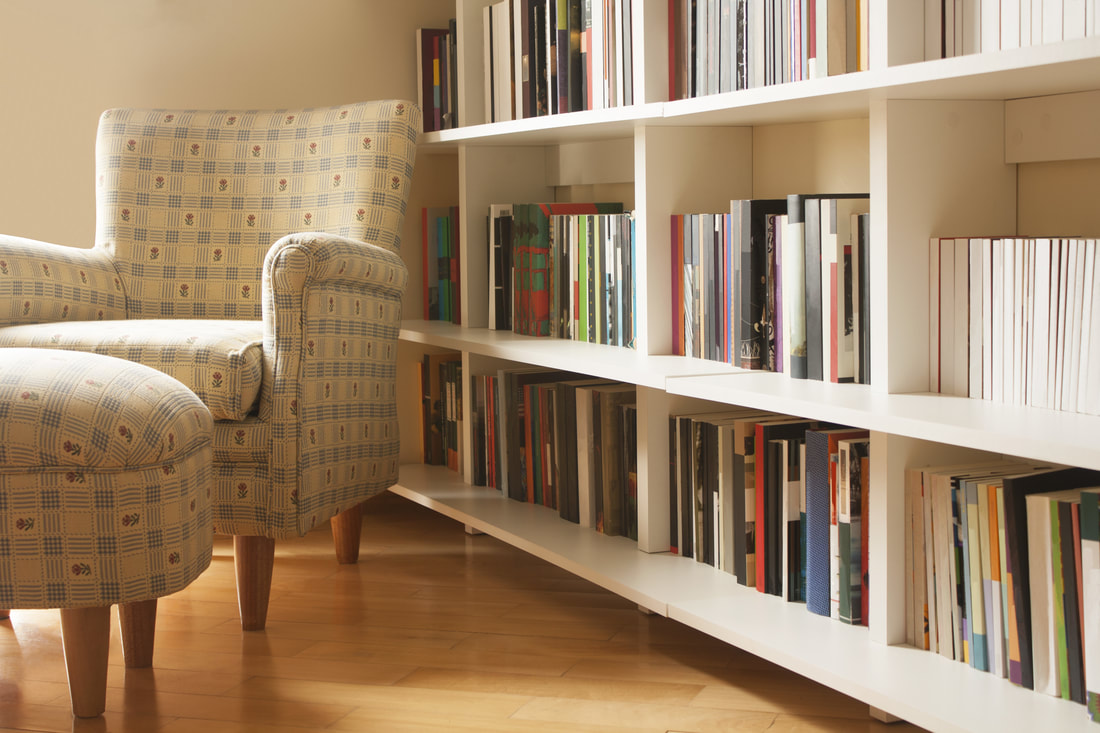
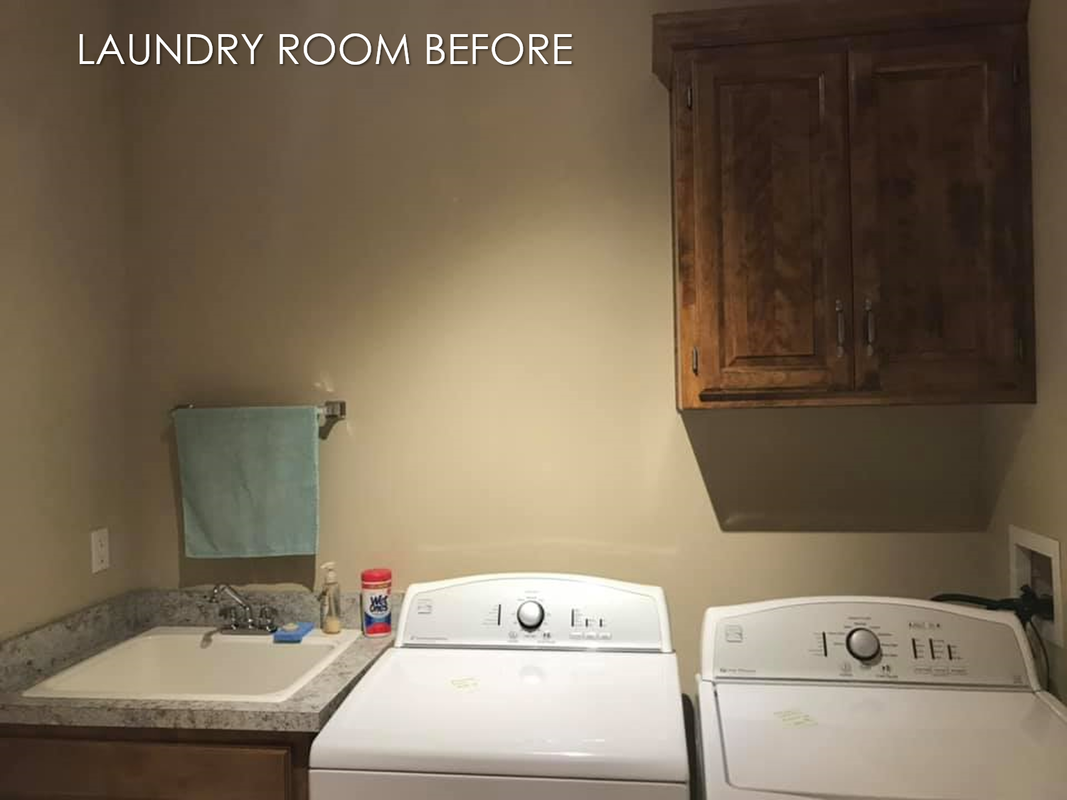
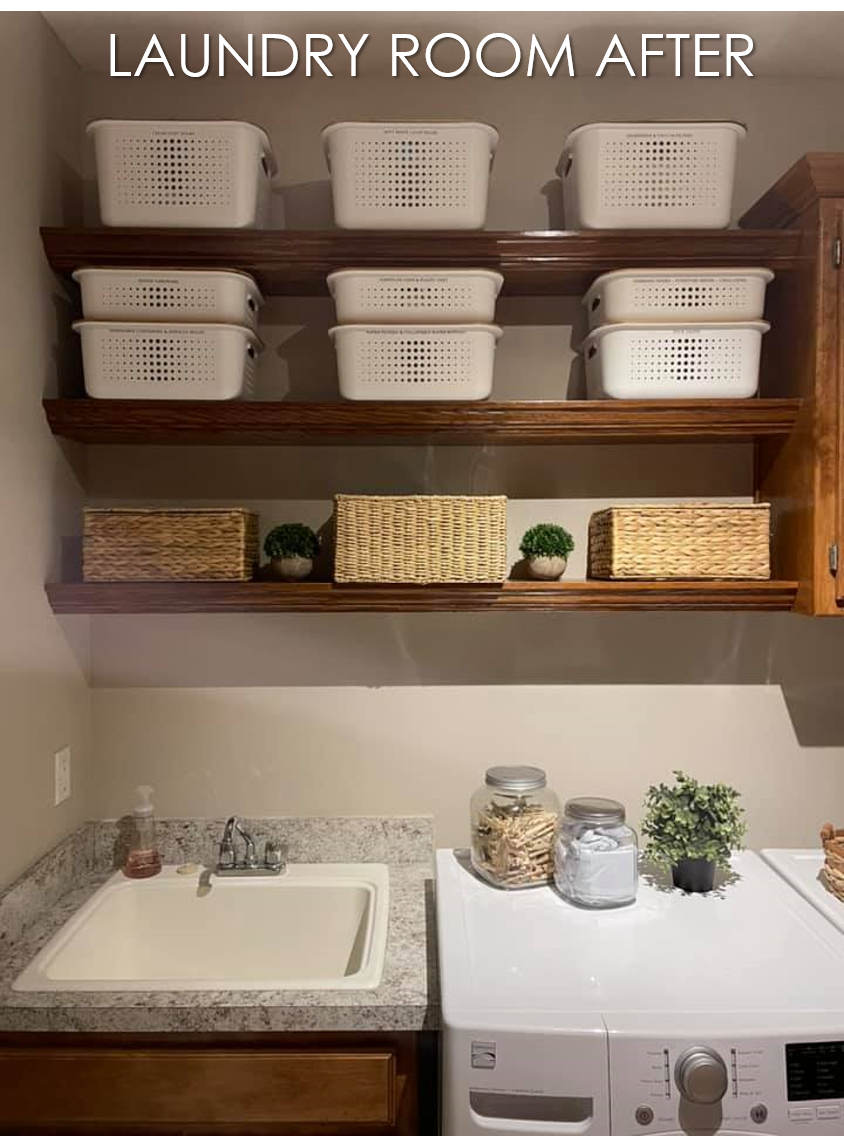
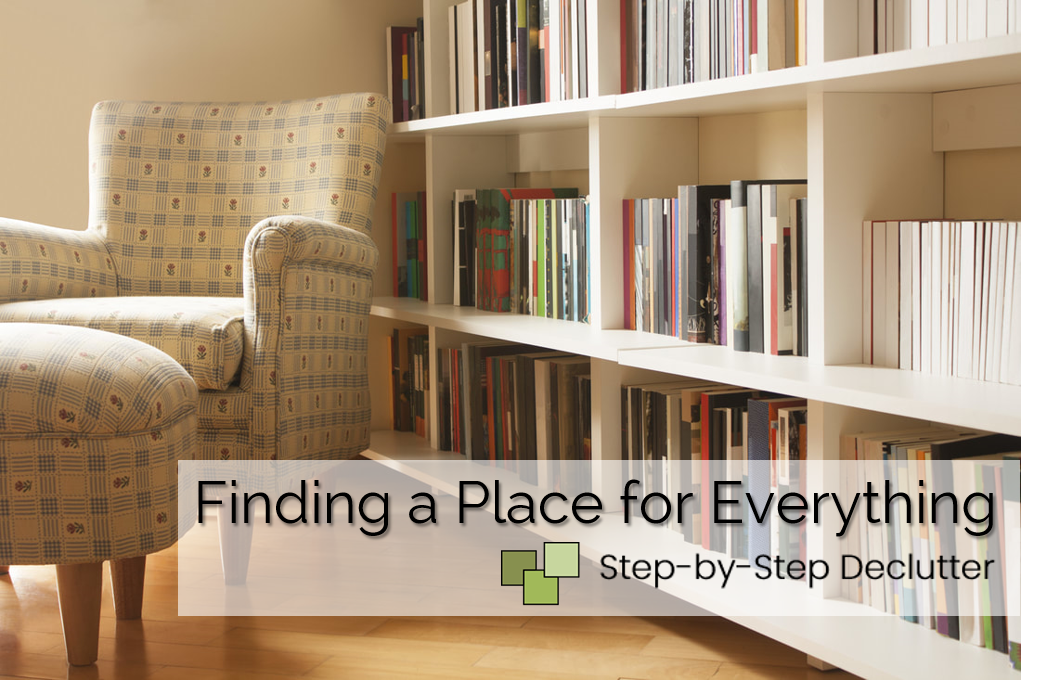
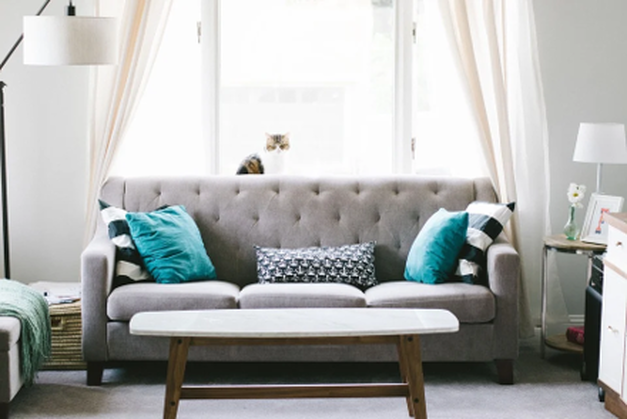
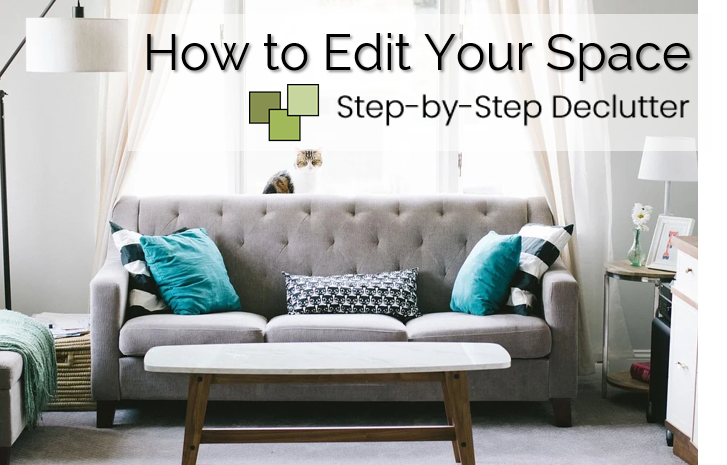


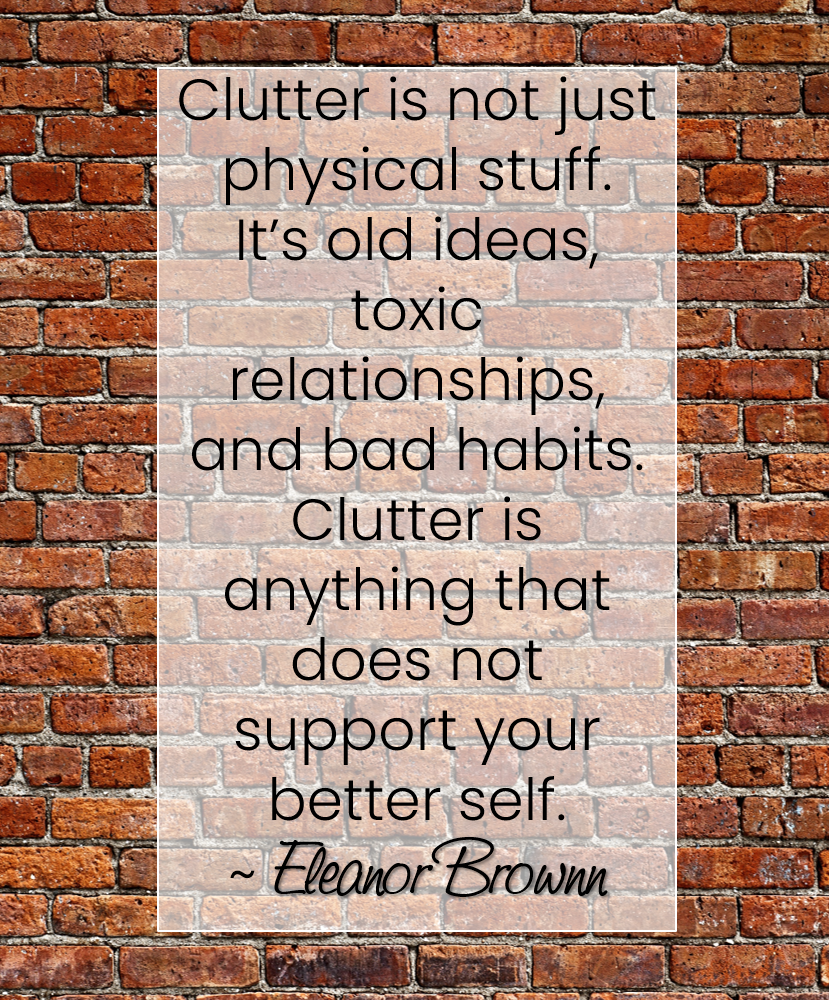



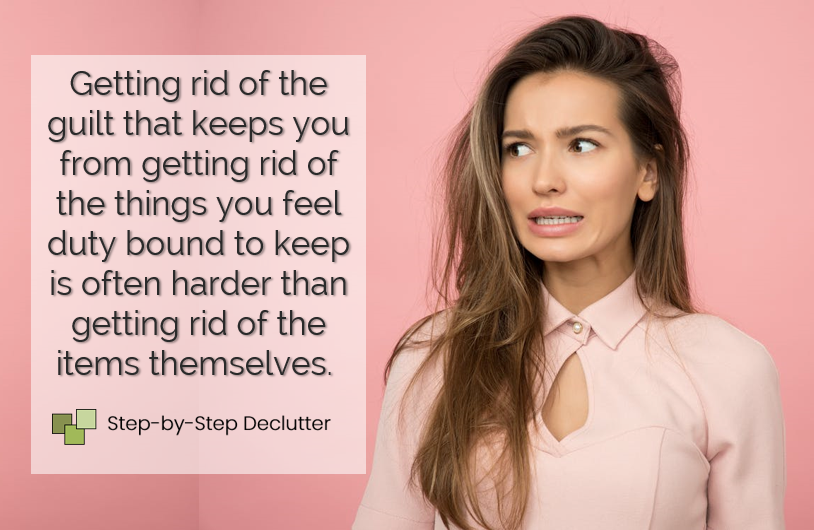
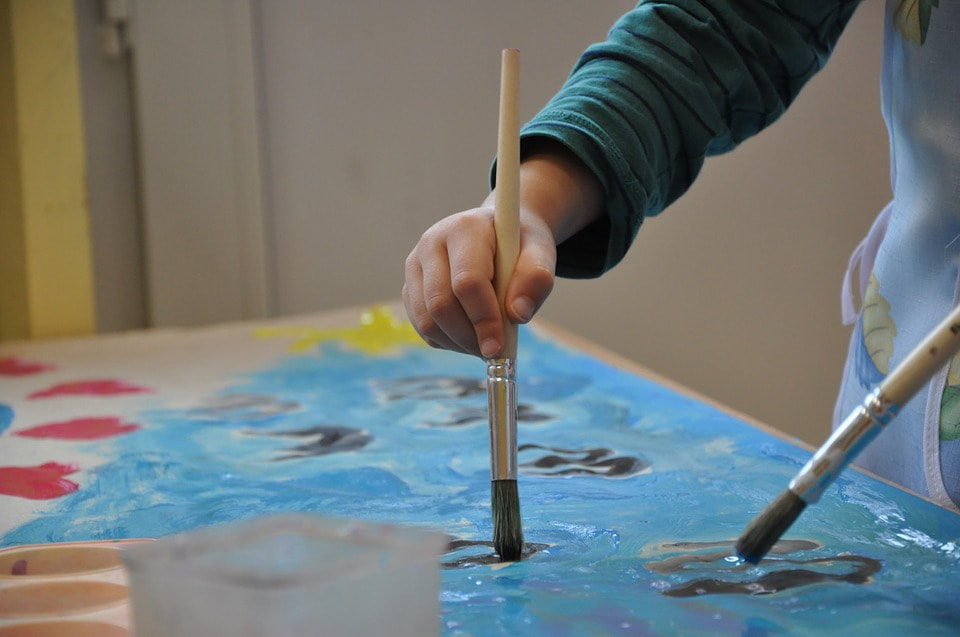

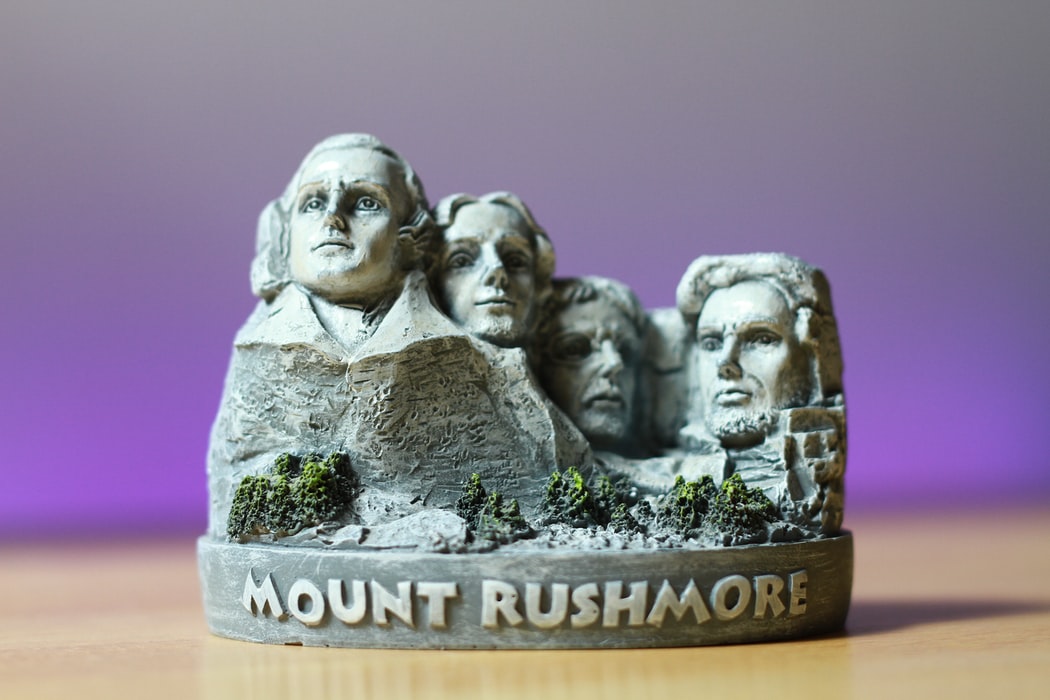

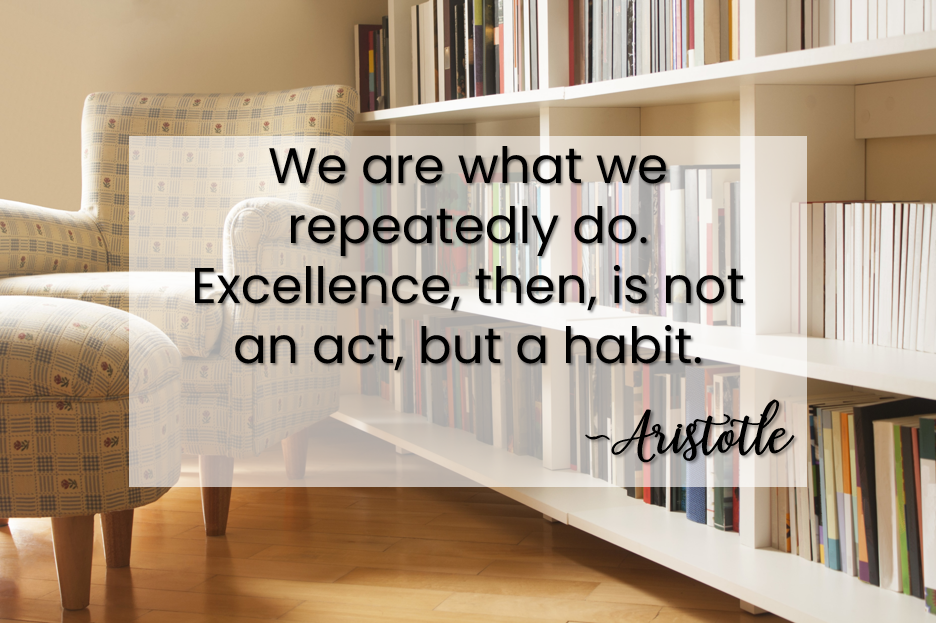
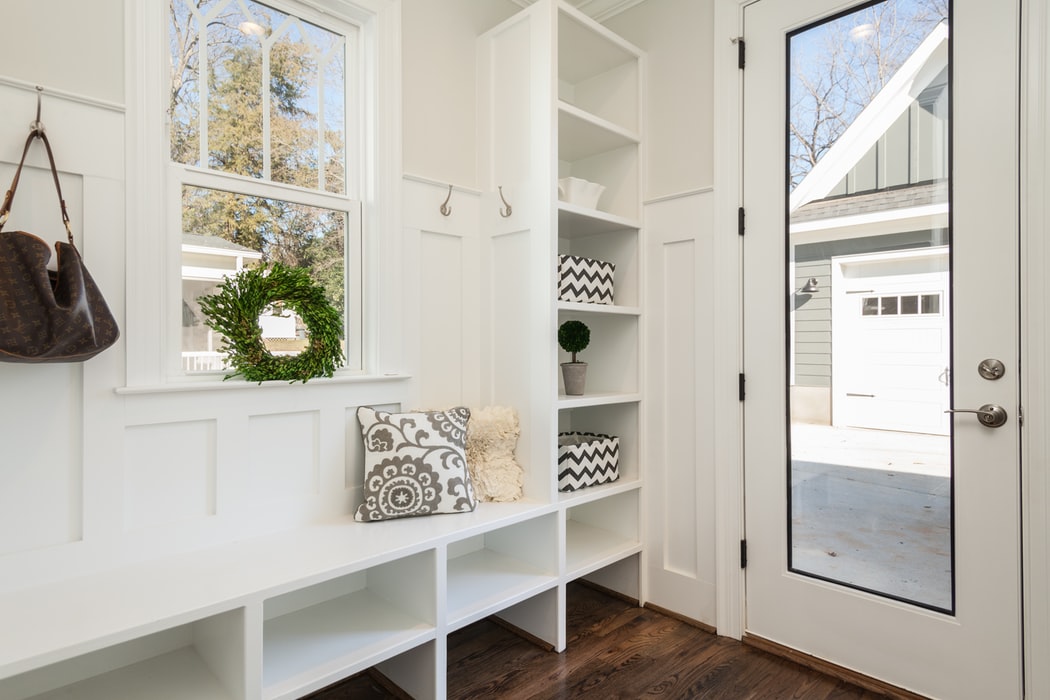
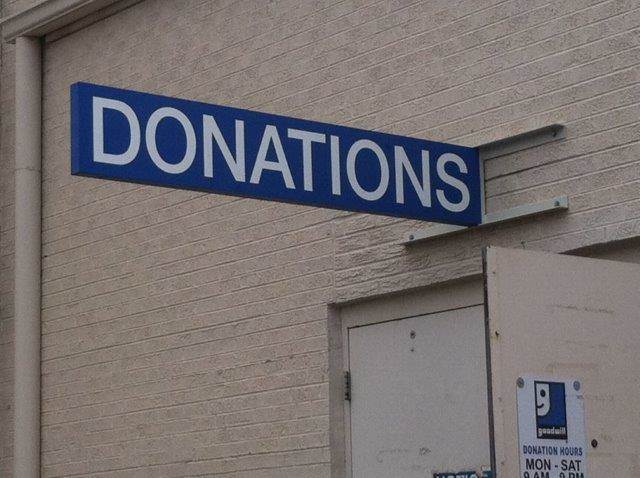
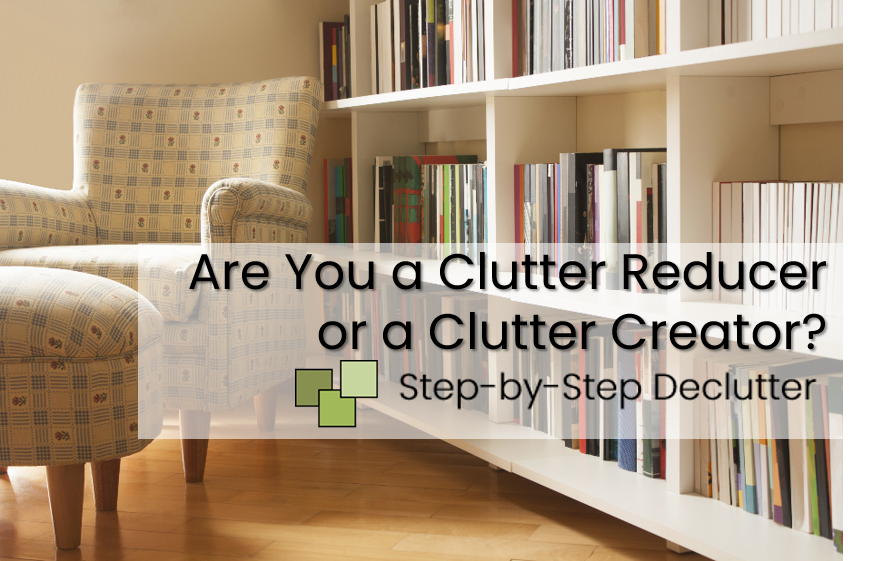

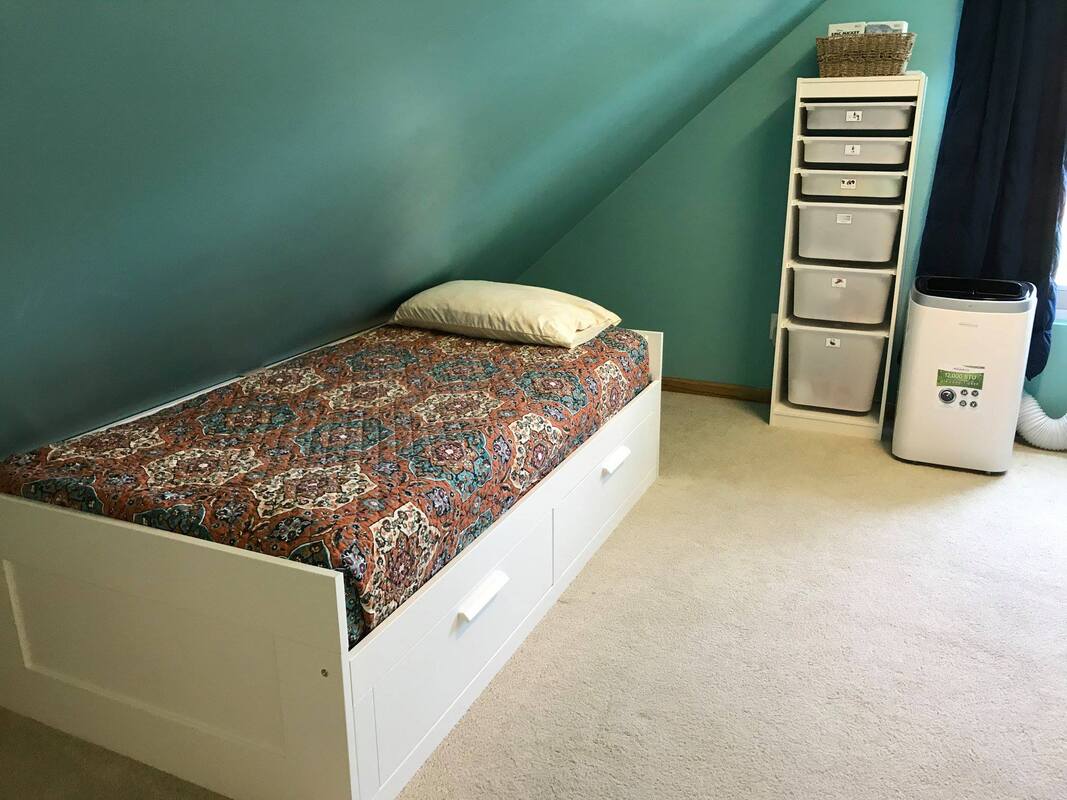
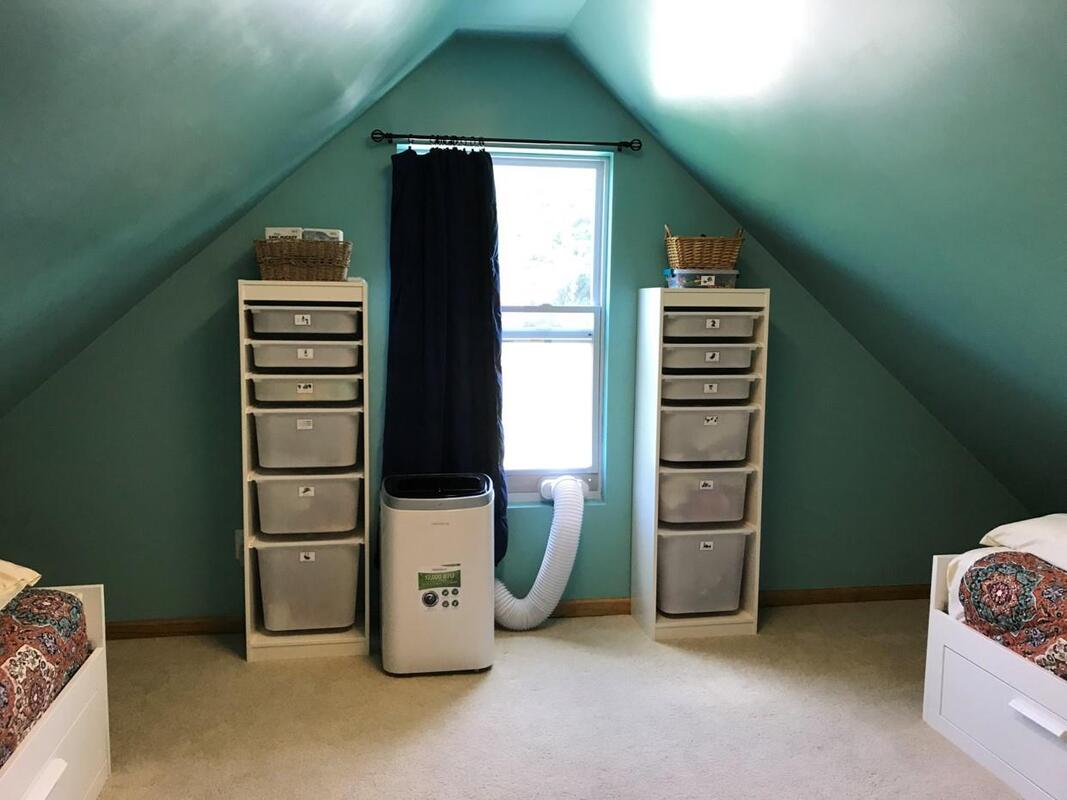
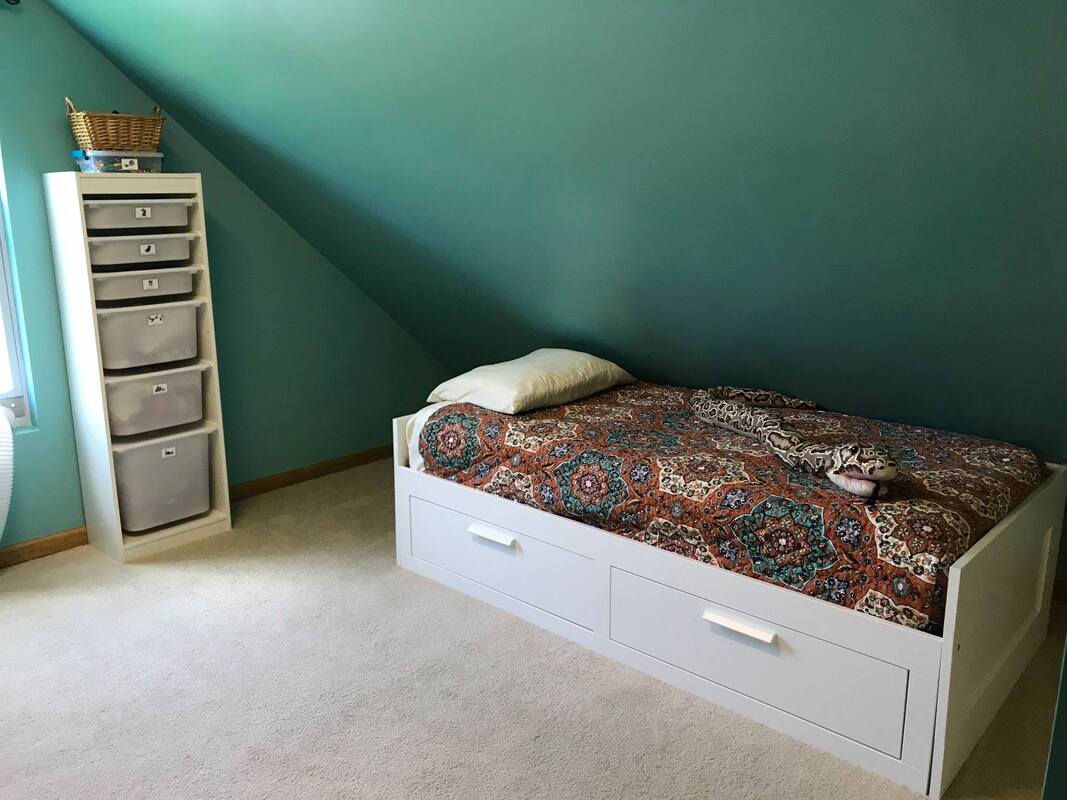
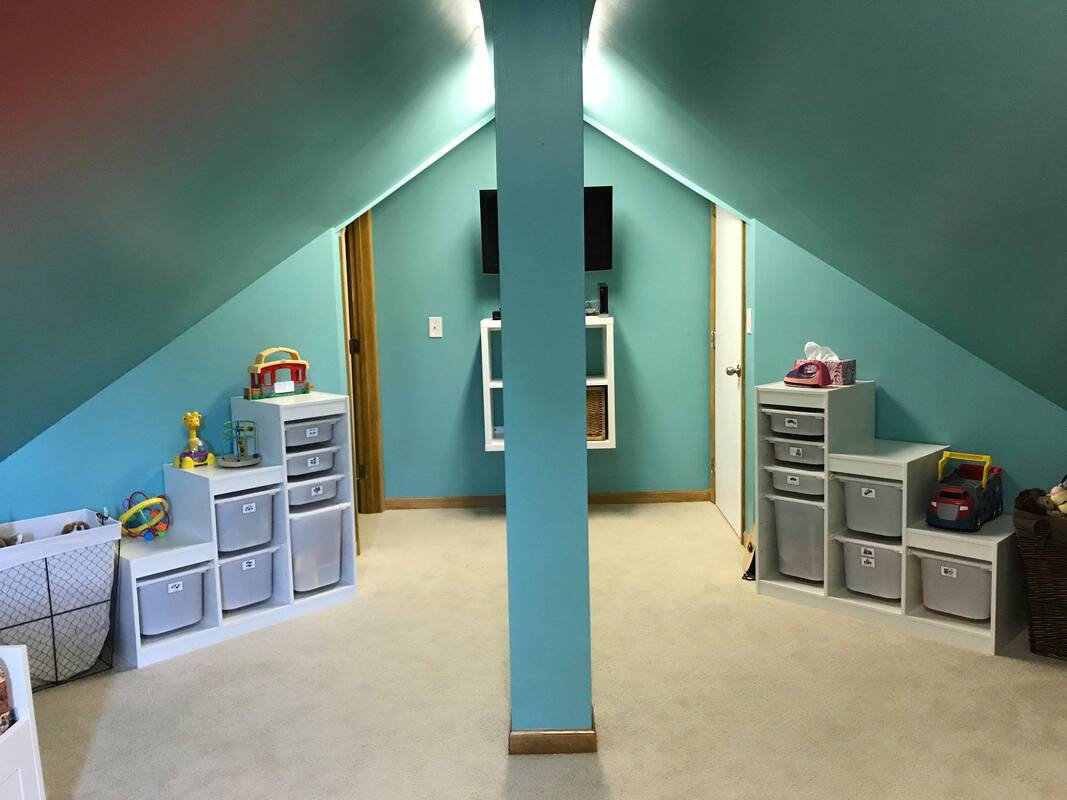
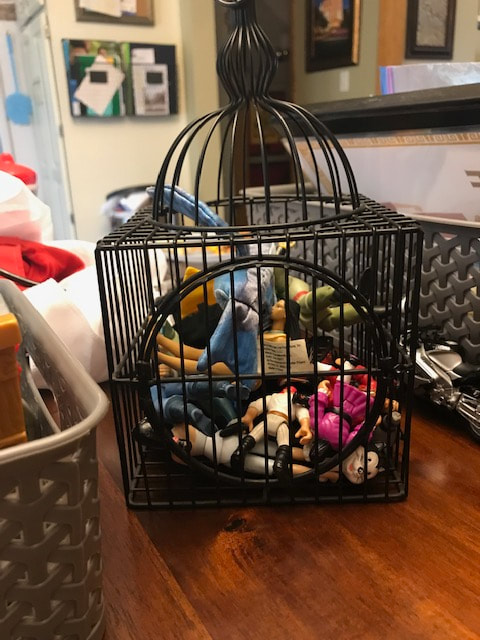
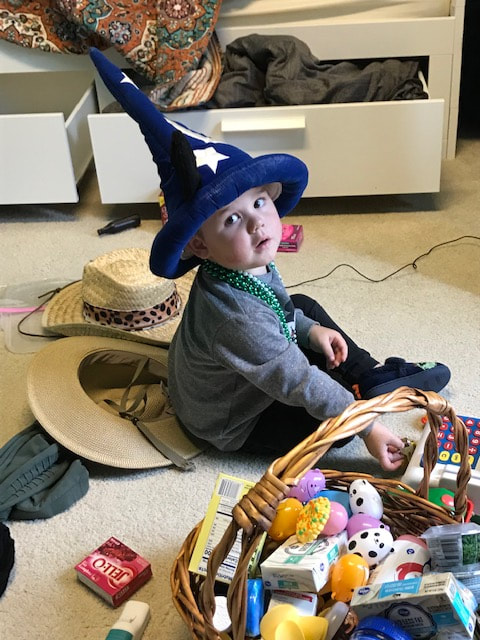

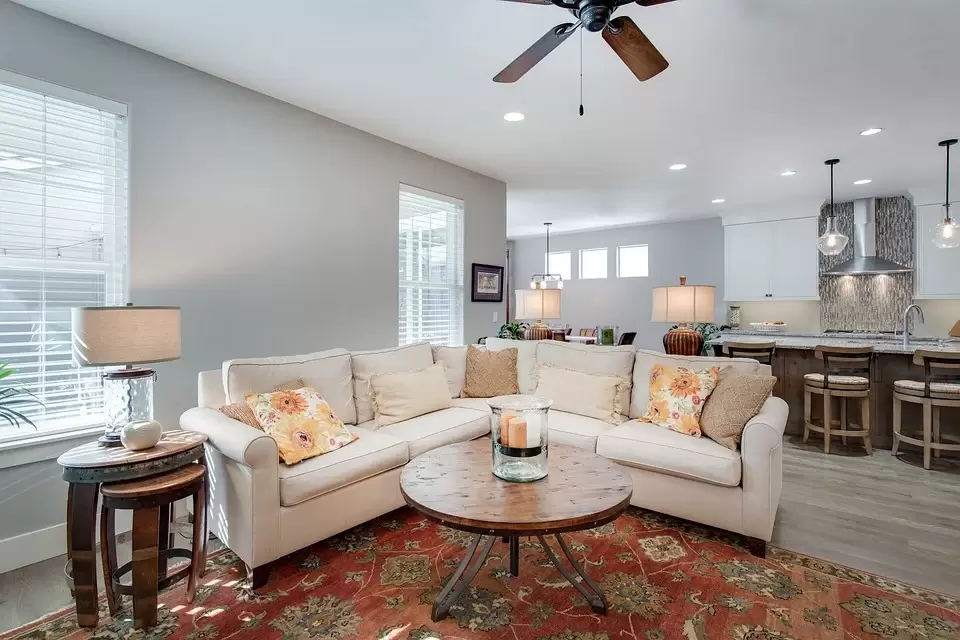
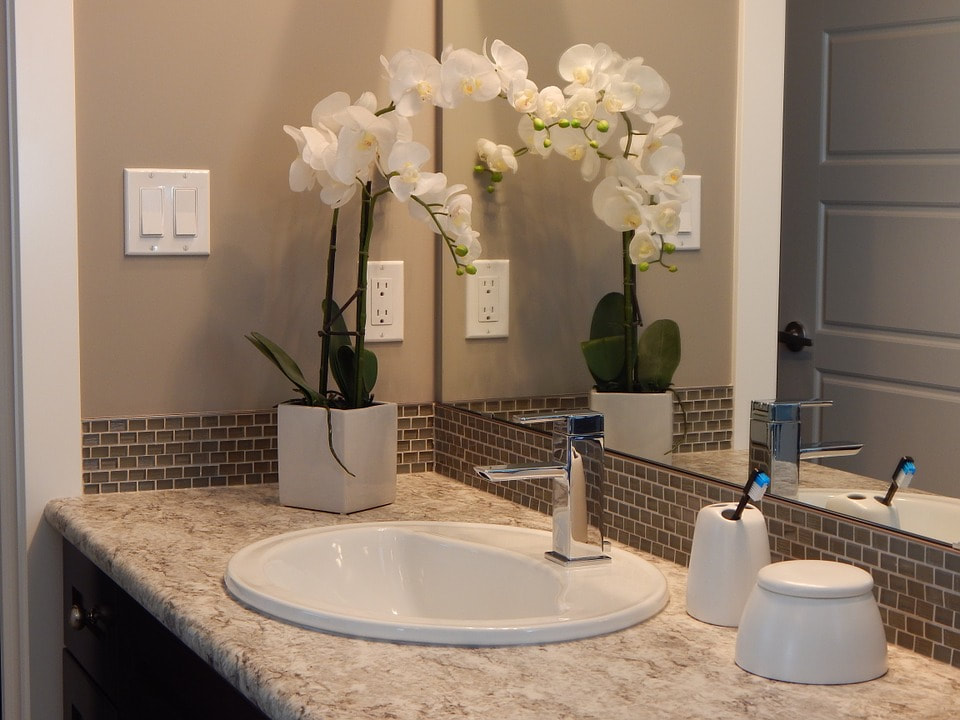
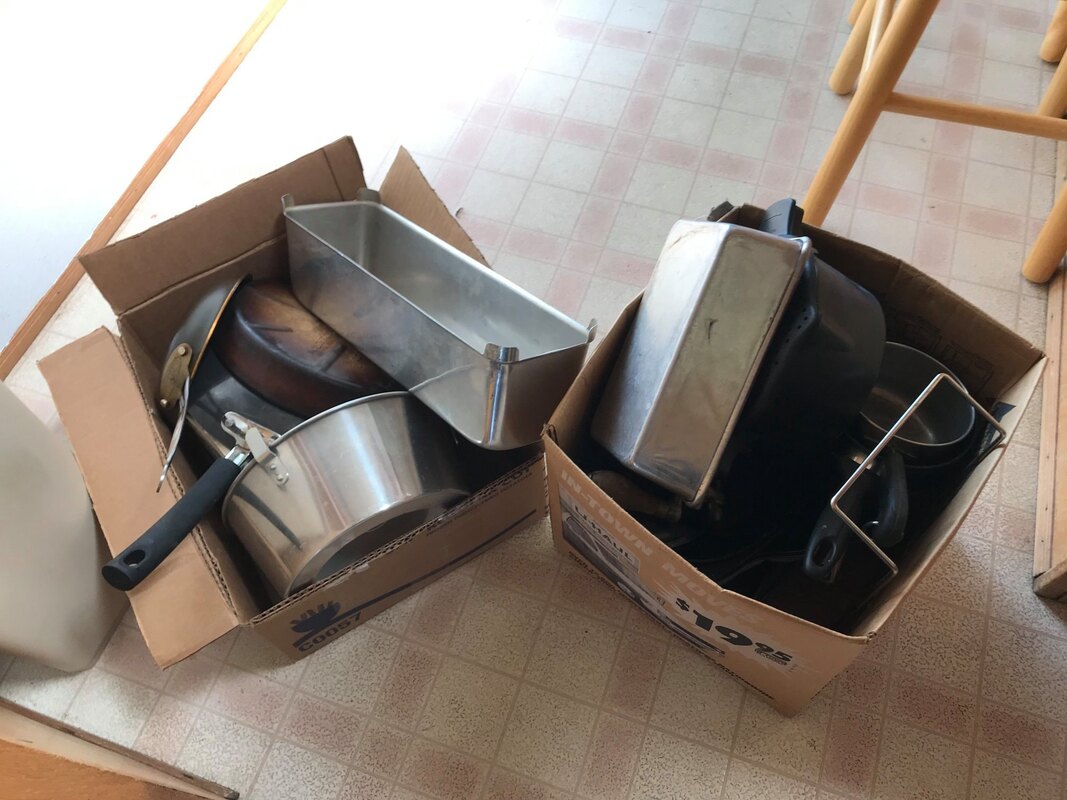
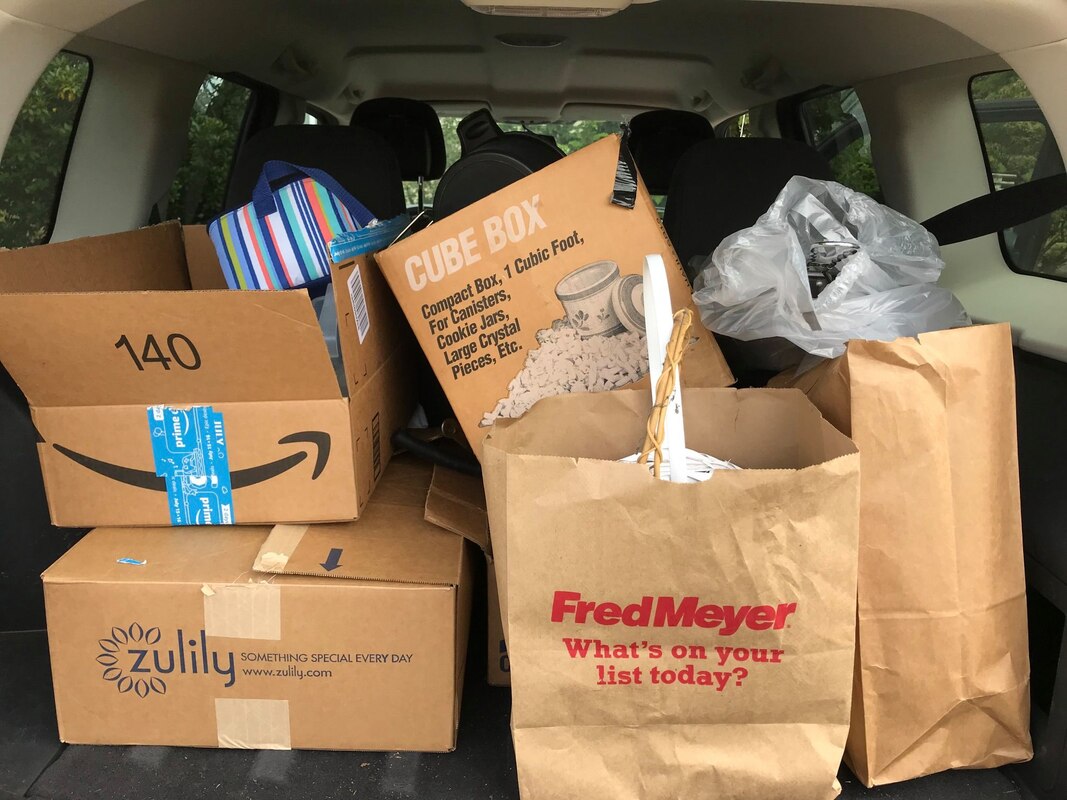
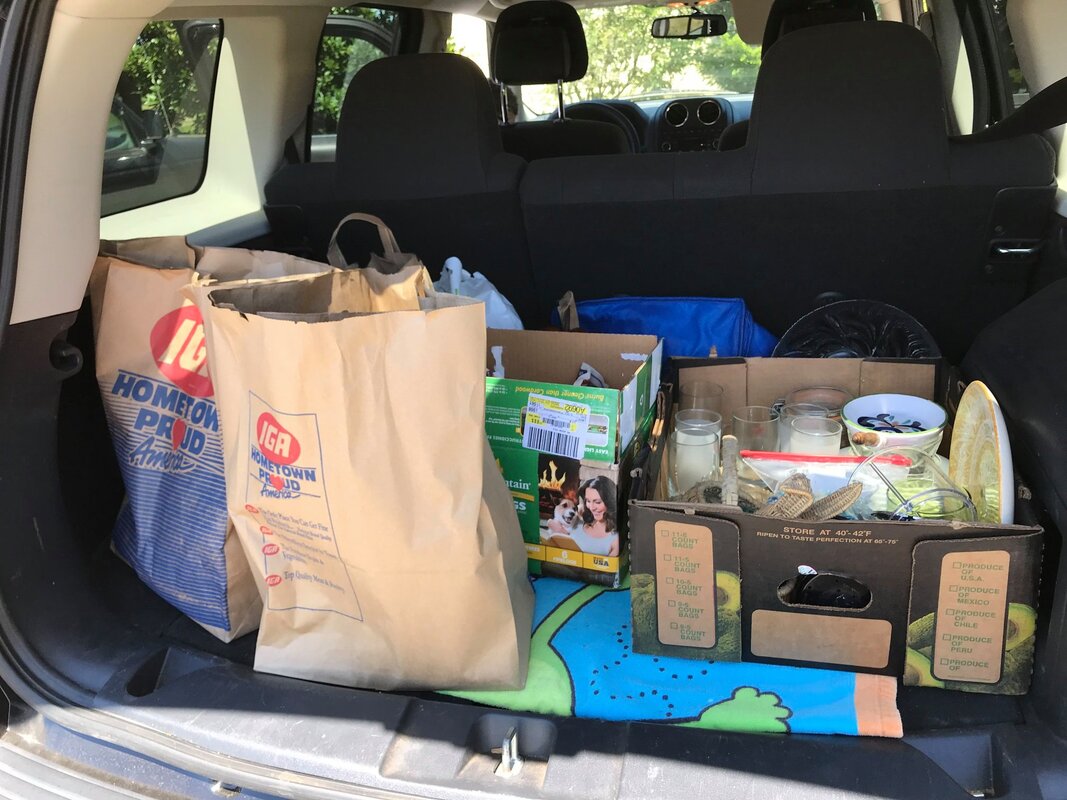
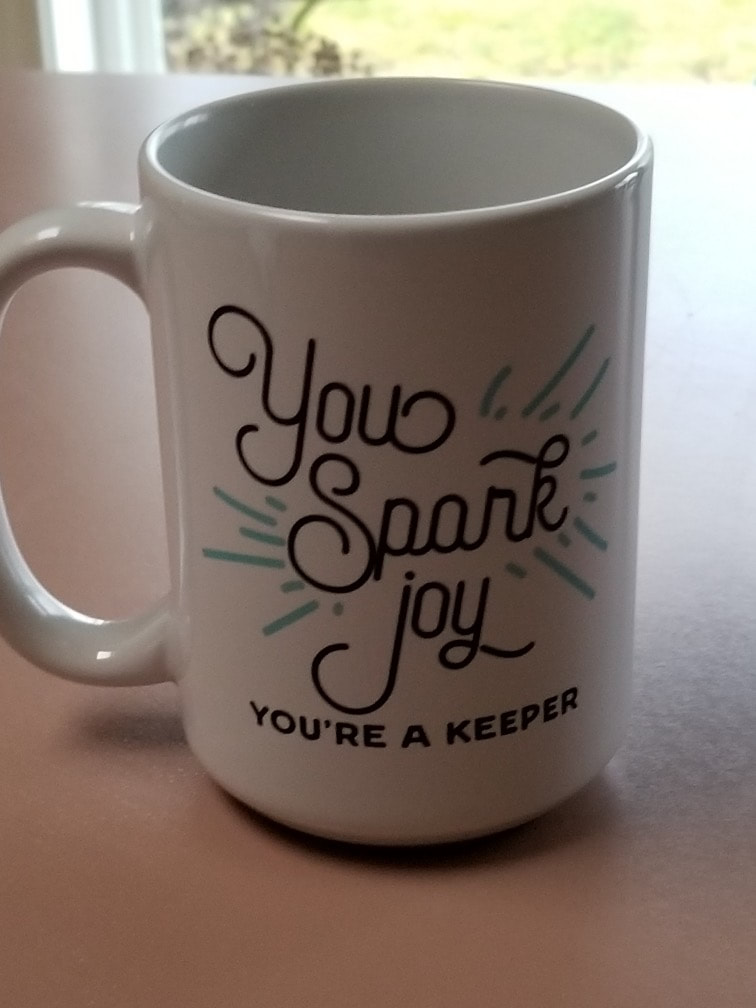

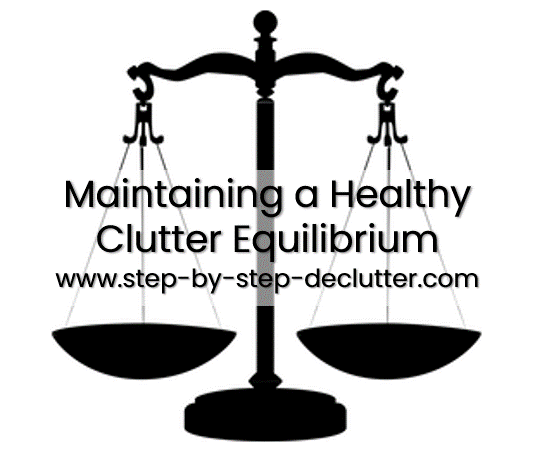

 RSS Feed
RSS Feed